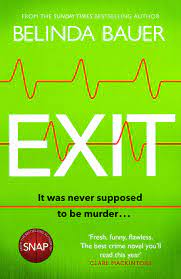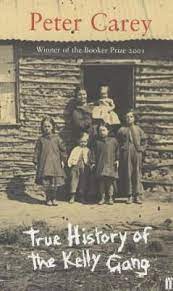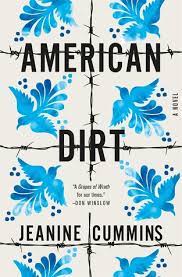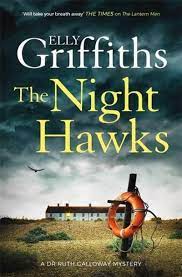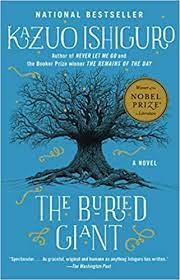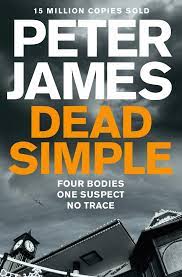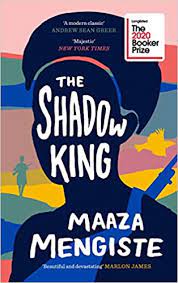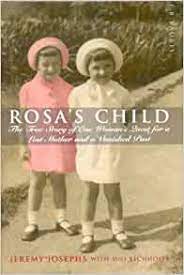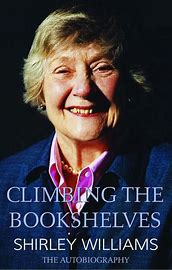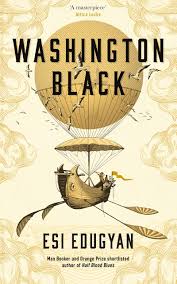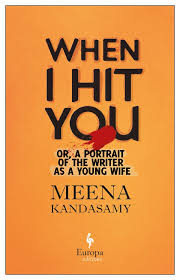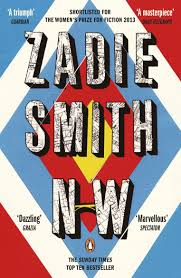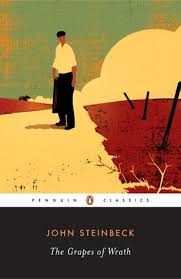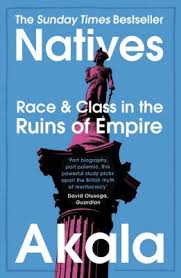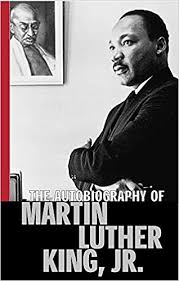Archive for category Literature
What I read in 2023 – the second half
Posted by cathannabel in Literature on December 15, 2023
This half year seems to have been particularly heavy on the crime fiction. And what’s listed below is not even all of the crime I read – there were some that disappointed me, and as always I prefer to share enthusiasm rather than disappointment (although I am not uncritical of the books that I have chosen to review), and there were some that were perfectly enjoyable but about which I could say little other than that this was another cracking title in x series by y. I turn to crime (as it were) for tension and suspense along the way and a satisfying denouement. But of course the best crime writers (looking at you, Sarah Hilary, Jane Casey, Will Dean, Laura Lippman, Denise Mina, Abir Mukherjee, Mark Billingham, Anne Holt, Louise Penny, Elly Griffiths, Ian Rankin, Mick Herron, Ann Cleeves, Val McDermid, Lesley Thompson and Sara Paretsky, to name only those I’ve read this year) give you more than that – psychological, political, sociological insights into the why and who of crime (on both sides of the law).
If I had to pick the outstanding novels in this half-year (of course I don’t have to, it’s my blog and I make the rules here) I’d say Richard Powers’ The Time of Our Singing and Stuart Evers’ The Blind Light, not only because they took me over completely whilst I was reading, and moved me tremendously, but because both authors were new to me, and so I had no expectations and was bowled over. I also rate very highly Eleanor Catton’s Birnam Wood, and great new stuff from Stephen King (Holly) and Sarah Hilary (Black Thorn).
Non-fiction was heavy on autobiography (Martin Amis, Angela Davis, Joan Didion, Catherine Taylor and Terri White), and biography. Two books on the US opioid crisis which has proven rather addictive as subject matter these last six months, and some grief/bereavement reading. Best/favourites? Catherine Taylor’s The Stirrings, and Joan Didion’s The Year of Magical Thinking.
FICTION
Megan Abbott – Beware the Woman
The premiss is one which I’m sure I’ve encountered before, but it’s a fresh take on the set up – a young couple, expecting their first child, visits one of their parents, and things get a bit weird. (Get Out sprang immediately to mind, although the tensions here are not to do with race). There’s a whole lot of gaslighting going on here, the creepiness is built up gradually and cleverly, and it was all very enjoyable, but with an undercurrent that’s really rather serious.
This is a complex and gripping thriller – it’s featured in a lot of end of year Best Of lists, not just mine – which delivers, generously, both intelligence and suspense. ‘Birnam Wood is a dark and brilliant novel about the violence and tawdriness of late capitalism. Its ending, though, propels it from a merely very good book into a truly great one.’
Ta-Nehisi Coates – The Water Dancer
Compelling narrative of slavery, with echoes of The Underground Railroad (like Whitehead, Coates takes the metaphorical and makes it literal), and with a leading role for Harriet Tubman. This isn’t just about slavery though, Coates looks more widely at capitalism, at the oppression of women, at the structures in society that require there to be a hierarchy and someone at the bottom of that who is powerless. Full of pain, inevitably, but of beauty too.
Will Dean – The Last Passenger
A cracking opening (and very different to Dean’s excellent Tuva Moodyson crime novels – I also read Wolf Pack in that series recently) . Caz is on holiday on an ocean liner with her partner, and wakes to find she is, apparently, alone on the ship. Dean pulls this off brilliantly, and every time we (and the protagonist) thinks they have begun to figure out what’s going on, we are blindsided with a new revelation – right up to the final page. It’s irresistible.
Bernardine Evaristo – Soul Tourists
An impromptu road trip for a slightly ill-matched couple which somehow leads to encounters with key figures from black European and Middle Eastern history. I don’t think it entirely worked; perhaps Evaristo was simply trying to do too much, and there are two novels in here, which don’t always mesh. Thoroughly entertaining nonetheless.
Stuart Evers – The Blind Light
A family saga, of lives lived in the shadow of the bomb, absolutely enthralling and moving. It sweeps across sixty years in the lives of its main protagonists, Drummond, Gwen and Carter, but always the focus is on these relationships, always intimate rather than letting the individuals become lost in the sweep of big events. One of my books of the year.





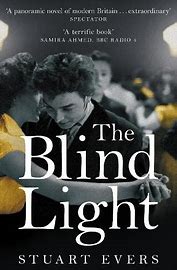
Robert Ford – The Student Conductor
Ford’s writing about music is wonderful, and really made me think about the role of the conductor. But the characters of Ziegler, the lead character’s supposed mentor, didn’t convince me (though he did remind me very strongly of J K Simmons’ character in Whiplash), nor did the oboist/love interest. Very mixed feelings about this one.
Abdulrazak Gurnah – Pilgrims Way
I read Gurnah’s brilliant Afterlives recently, set in what is now Tanzania in the early twentieth century. Pilgrims Way is closer to home, geographically and chronologically, and its scope is much narrower, dealing with one man, Daud, an immigrant whose life has not gone to plan, and who deals with his disappointment and disillusionment with sardonic humour and leaps of imagination. It’s often funny, but always dark and troubling.
Mohsin Hamid – The Last White Man
A fable in which a white man wakes up one morning and looks in the mirror to see that he’s no longer a white man. He has to navigate the world now as a black man, and everything is different. At this point it made me think of Arthur Miller’s novel, Focus, in which a man gets new spectacles, which make him look Jewish to some people, and those people conclude that he must be Jewish. But Hamid’s tale goes in a different direction and I found it beautiful.
Sarah Hilary – Black Thorn
A stand-alone from Hilary, whose Marnie Rome detective novels are amongst my favourite contemporary crime thrillers. Here the focus is not on the police, who play a more peripheral role, but on a small community of people who, we learn at the beginning, have encountered some catastrophe, and we gradually learn what, how, who, why… It’s beautifully done – incredibly tense and creepy and that tension is maintained as truths emerge.
Catherine Ryan Howard – Run Time
This is gripping stuff! Layers upon layers, super tense atmosphere, the plot revolves around the filming of a horror movie, in an actual cabin in the woods…
Clare Keegan – Foster
A novella of real delicacy, beauty and heartbreak. A child goes to stay with strangers when her mother is pregnant again, and finds herself with space and time to think and breathe, as she tries to understand her new guardians, and her own mother.

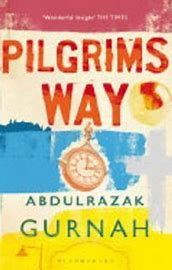



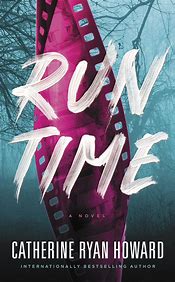
Stephen King – Holly
Holly first appeared in King’s Mr Mercedes, but he clearly loved her, because her role became increasingly important, in the other two books in that trilogy, but also in The Outsider. And here she is front and centre, as the title promises. This is King at his best, conjuring up creeping unease and tension, creating monstrous human beings and monstrous deeds, without ever letting the monstrous have it all their way, because he also creates people like Holly, who will, as she has done since Mr Mercedes, stand in its way. We love her as much as King does.
Laura Lippman – Prom Mom
Lippman’s plots are as twisty as the run of the mill psychological thrillers which bill themselves as having ‘a twist that you’d never predict’. But unlike so many of those, the twists are earned by careful plotting and, most of all, by character building. Our sympathies shift as we understand the protagonists better but understanding them is key to the twists in the narrative, rather than just upturning everything we’ve previously been told. And we do feel for these people, all of them, however weak and flawed they turn out to be.
Luke McCallin – The Man from Berlin
McCallin’s protagonist is an Abwehr officer, a former policeman, who is trying to solve brutal crimes in the context of a regime which is itself brutal and criminal. It’s similar territory to Philip Kerr’s Bernie Gunther series, and whilst I have only read one of this series so far, I will follow it up because I’m fascinated to see how Gregor Reinhardt navigates this dangerous, brutal world.
Cormac McCarthy – All the Pretty Horses
McCarthy’s prose is as rich as his dialogue is spare – sometimes the former feels just a bit too much, but at best its richness is beautiful rather than indigestible. His protagonist is a 16 year old boy who’s just been turfed off his grandfather’s ranch, and decides to try his luck in Mexico, along with his best friend, and their horses. John Grady Cole is someone we quickly learn to care about – like so many at his age, he thinks he understands the world rather better than he does, but he is in many ways an archetypal Western hero, with principles and courage and loyalty. It’s a world I don’t really understand but this is a compelling and moving novel. It’s the first in a trilogy, so I may venture on to Vol. 2 (The Crossing) at some point.
Denise Mina – Field of Blood
Mina weaves a fictionalised version of a real crime, and a real case of miscarriage of justice together with her usual skill. Paddy Meehan too finds her job (as a copyboy at a newspaper) and her personal life getting dangerously intertwined. She’s an engaging character, not perfect in judgement or actions, but I will look forward to reading the other books in which she features.
Abir Mukherjee – A Rising Man/A Necessary Evil
The first two in a crime series set in India in the early 20th century, with a British/Indian team, exploring all the tensions that creates (between the two of them, and with wider society). The context is fascinating, the writing excellent, and the voice of Wyndham, the British officer, is convincingly that of an enlightened man of his time, rather than a stand-in for a contemporary reader.

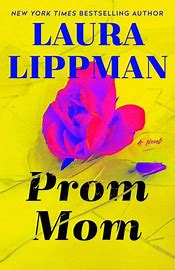

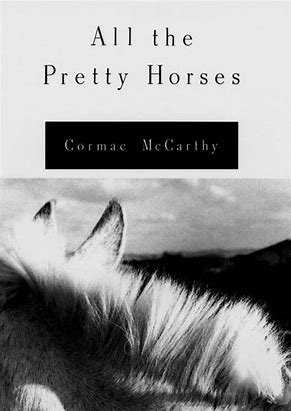

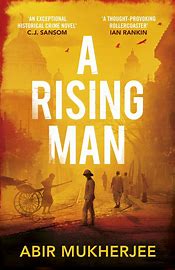
Richard Powers – The Time of our Singing
A truly immersive book, which I started off reading in short bursts until I realised that wouldn’t work. It’s a profoundly musical book – I half intend to create a playlist of all of the pieces of music that play a part in the narrative, although what I would really want would be those pieces performed by the characters in the book. It’s also brave (or foolhardy) enough to tackle race, as the protagonists are a mixed-race family (white father, black mother) in the US in the mid-twentieth century. I found it beautiful, powerful, very moving.
Anya Seton – My Theodosia
I read this, along with everything Anya Seton wrote, as a teenager, and revisited it because I was reading the biography of Alexander Hamilton (see below), who was killed in a duel by Theodosia Burr’s father. But, my god, this is an appallingly, sickeningly racist book. I wondered whether Seton was simply trying to convey the perceptions of a young woman in a society where slavery was still entrenched (although we are told that Theodosia thought slavery was wrong), but no, Seton wrote this in 1942 as a young woman in a post-slavery but pre-civil rights society, and it is impossible to escape the conclusion that these were her perceptions too. Her descriptions of any black characters are contemptuous, the n word is on every page. Of course, this is a novel of its time (and about a time when things were worse), but it made it a grim read and it was hard to care about Theodosia or her father when one had to wade through all of this. I can’t remember how I felt about the book when I first read it, but I think that, although I was more aware of racial politics than my contemporaries at school in Mansfield, having grown up in West Africa with parents who were passionately anti-apartheid, and having a keen interest in the civil rights/black power movements, I was at the same time used to encountering these attitudes and this language, unapologetically presented, in a way that we no longer are.
Elif Shafak – The Island of Missing Trees
I’ve enjoyed a couple of Shafak’s other books, and I liked a lot of things about this, but there was way too much whimsy for my taste. Whole sections are narrated by a fig tree, and whilst I can see how this connects with the history of the divided island of Cyprus, and with the stories of the main protagonists, I speed-read through these bits (sorry) to get back to the human characters, with whose stories I could more fully engage.
Khushwant Singh – Train to Pakistan
A novel about Partition, published in 1956, so not long after those events, set in a fictional village near the new border. Singh was a lawyer, diplomat and politician as well as a writer. His perspective here is to explore the cataclysmic events taking place across the sub-continent through a close focus on this small place, its dignitaries and officials and local ne’er do wells, who are portrayed with sharp wit and humour, even whilst the undercurrent of imminent tragedy is getting stronger.
Noel Streatfeild – Saplings
I’ve read many/most of Streatfeild’s children’s books, and her Vicarage trilogy but had no idea of this one’s existence until I spotted it in the catalogue of the brilliant Persephone Press. It’s the story of four children in wartime, of losses and betrayals and insecurity, and it’s a deep dive into ideas about attachment and loss and their effects on the young. If that makes it sound offputtingly theoretical, it isn’t – her novelist’s gift is to make us care about these children and what happens to them, and it’s very moving.
Marion Todd – See Them Run
Very enjoyable police procedural, set in the area around St Andrews, where I visit a couple of times a year (there’s always a peculiar fascination in reading thrillers set in familiar territory). Will read more.
Miriam Toewes – Women Talking
Recently made into a rather good film (see my screen review blog). This is horrifying, all the more so because the case is real. Girls and women in a Mennonite community in Bolivia were drugged and raped by members of their own community, and despite the perpetrators being exposed and some jailed, the women were left with no redress, and no protection. The book is, as the title tells us, women talking – and they talk about survival, about whether they should stay in the only place they know or leave and take their chances in what may be a hostile world. The tension – and it is very tense indeed – comes both from the disagreements amongst the women and the depths of trauma that they reveal, and from the knowledge that they could so easily be prevented from leaving, when the men return.



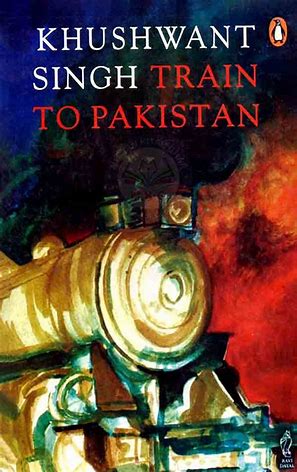
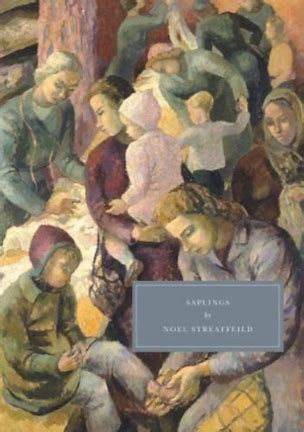

NON-FICTION
Martin Amis – Experience
I’ve only read one of Amis’s novels, and I hated it. Time’s Arrow was clever, but in a way that repelled me, and that put me off trying any of his other novels. So, in the aftermath of his death, I thought I might encounter him through his memoir. I liked him more here – he is self-critical, he can find his past self ridiculous and blameworthy, and he can be generous to at least some of the other people in his life. And in his writing about the disappearance and murder of his cousin Lucy Partington by Fred and Rosemary West, there is real heart, real grief. I still don’t want to read any of his novels though.
Anita Anand – Sophia: Princess, Suffragette, Revolutionary
Biography of an extraordinary woman. Daughter of a Maharajah, god-daughter to Queen Victoria, and as the book’s title tells us, suffragette and activist. Absolutely fascinating. Sophia herself remains enigmatic, but her engagement with the ‘advancement of women’, and with campaigns in support of Indian lescars, Indian troops in WWI, and the cause of Indian self-determination was bold and brave, and through her we see a varied and colourful cast of characters, both Indian and British.
Jeanine Basinger & Sam Wasson – Hollywood: An Oral History
The story of Hollywood told through interviews with people who were there – directors, actors, writers, studio bosses. The interviews, held in the American Film Archives, cover all aspects of movie-making so inevitably some sections are more interesting (to me) than others, though overall it is fascinating and enlightening, and very entertaining.
Ian Black – Enemies and Neighbours: Arabs in Jews in Palestine and Israel, 1917-2017
In the wake of the 7 October Hamas attacks, and the Israeli bombardment of Gaza, I wanted to understand more about why we are where we are and why this is such an intractable situation. I knew some of the story, of course, but I wanted a rigorous historical approach, non-partisan as far as is possible. Black’s book fits the bill. It is, of course, deeply depressing, but it is impossible when reading it to take a simplistic view of causes or possible solutions.
Ron Chernow – Alexander Hamilton/Mike Duncan – A Hero of Two Worlds: The Marquis de Lafayette in the Age of Revolution
I’ve grouped these two biographies together because their subjects were not just contemporaries but friends, and there are many parallels between them. Reading up on Hamilton is prep for going to see the musical in Manchester in February – when I watched it on TV I realised how sketchy my knowledge of that period of American history was, and whilst I dare say it’s not compulsory to do the reading before enjoying the music, it’s very much me… I had a better grasp on Lafayette’s story because my History A level covered the French Revolution and its aftermath, and I’ve read around the subject since. Both Hamilton and Lafayette were extraordinary men who achieved far more than anyone expected of them, at quite a young age, and these accounts bring them to life whilst providing a thorough, well-researched and readable historical context.

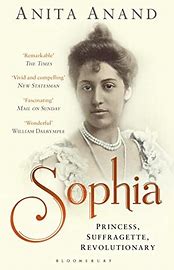




Angela Davis – An Autobiography
Davis was a hero of mine during my teens. I read a lot about the activists in the black power movement but was inevitably drawn to Davis – her charisma, her passion, her image. Women, Race and Class is brilliant, and so is this. It was originally published in 1974 and now has a series of prologues written for each successive edition, which shed light on how her perspectives have changed and how she responds to more recent events.
Joan Didion – The Year of Magical Thinking/Sarah Tarlow – The Archaeology of Loss: Life, Love and the Art of Dying
Two books that I was drawn to because they addressed how we live after the death of a partner. Didion’s book was recommended to me, with the caveat that I shouldn’t read it too soon – there are of course no rules as to how soon is too soon, and I think I got it about right. It was in places a very tough read – her description of her husband’s death had so many echoes of what happened to me – but her insights into the process she went through were profound and powerful (my copy of the book now has many sections highlighted so I can return to them when I need to). Tarlow ventures out further from her own experience to ruminations on how we (now and in the past) deal with death and loss, and it’s fascinating and often moving. It spoke to me less personally than Didion’s account because much of it is concerned with how she became her husband’s carer when he developed a terminal degenerative illness, and how that affected her and their family (my loss in contrast was shockingly sudden). It’s brutally frank and unsentimental about the cost and the loneliness of the carer’s role, and so whilst I was initially drawn to the book because it addressed bereavement, this topic is also vitally important and relevant.
Eddie Glaude – Begin Again: James Baldwin’s America and its Urgent Lessons for our Own
I have loved Baldwin’s writing since my teens, when I read Go Tell it on the Mountain, and found his voice so compelling that I read over the subsequent years all of his other novels and essays. Glaude considers Baldwin’s evolving views on race in America, and as promised draws out lessons, and he conveys both Baldwin’s despair and the hope he held on to despite everything. It’s not a hagiography, he does not treat Baldwin as a sage, but as a passionate, deeply insightful, direct and honest writer whose insights into America are as relevant as ever.
Beth Macy – Dopesick: Dealers, Doctor and the Drug Company that addicted America/Chris McGreal – American Overdose: The Opioid Tragedy in Three Acts
See my Screen blog for the two dramas and the documentary that I watched on the topic of the US opioid crisis. I clearly became somewhat obsessed with this topic, having read Demon Copperhead and then watched the Netflix drama Painkillers… These books follow similar ground, but have a different approach. American Overdose focuses more on the politics and the perpetrators: ‘McGreal’s book reads like a white-collar The Wire, with a cast of characters determined to exact as much money as possible regardless of the human cost’. Macy foregrounds the stories of the victims and their families. Taken together they give a full and heartbreaking account that will, and should, make you angry, even whilst it breaks your heart.






Wendy Mitchell – One Last Thing: How to Live with the End in Mind
I’ve been following Wendy Mitchell for some years now, as she navigates life with early onset dementia with humour and honesty. It’s rare to hear the voices of dementia sufferers because they are so often and so quickly unable to articulate their own experience, so Mitchell’s accounts are immensely valuable. This book is different – it looks at how we approach the end of our own life, and how that end can be made more dignified, how we can have some control over when, how, and where. This is a passionate work of advocacy for assisted dying, but Mitchell recognises that the provision that exists in a number of countries generally cannot help her and others with dementia because by the time they would want to be able to check out (the point at which, for example, they are no longer able to recognise their closest family), they will not have capacity (or not be deemed to have capacity) to make that decision. It’s a huge and heartbreaking dilemma, and Mitchell doesn’t offer solutions, but makes a vital contribution to the discussion.
Anthony Seldon & Raymond Newell – Johnson at 10: The Inside Story
‘This is an authoritative, gripping and often jaw-dropping account of the bedlam behind the black door of Number 10 and it confirms that we did not really have a government during his trashy reign. It was an anarchy presided over by a fervently frivolous, frantically floundering and deeply decadent lord of misrule.’ It’s all the more powerful because the authors are far from being anti-establishment figures. It makes it clear that the picture painted by the TV drama Partygate (see my Screen blog) is entirely plausible and consistent with the culture at Downing Street under Johnson. Incredible, and appalling.
Gitta Sereny – The German Trauma: Experiences & Reflections, 1938-2001
This collection of articles from almost forty years of writing about, thinking about and remembering the Nazi era includes much that is fascinating, some that is contentious, and inevitably a vast amount that is horrifying.
Catherine Taylor – The Stirrings: A Memoir in Northern Time
A memoir of Sheffield – of my Sheffield (Broomhill and Crosspool, the University) – was always going to interest me. Taylor is around ten years younger than me, and so she describes the Sheffield she knew as a teenager, whereas I arrived here to go to University. The shadow of Peter Sutcliffe hangs over much of her account, as it did over my life – scared to be out at night, scared even to open the back door to put the milk bottles on the window ledge, praying that Karen from next door would be on my bus so we could scurry home together along School Road, looking over our shoulders and not breathing properly until we were indoors. Taylor’s writing is brilliantly evocative, both of the place and of her own experiences and emotions. As Helen Mort puts it, this is ‘a lyrical account of what cities and their residents witness, how places shape character’.
Dorothy Whipple – The Other Day: The World of a Child
Charming, funny account of a childhood in the very early twentieth century, from a writer whose novels I’ve discovered and loved in recent years.
Terri White – Coming Undone
This is a bleak, harrowing account of how a chaotic and abusive childhood pushed White into crisis as an adult. Her honesty is unflinching. I wondered throughout just how she was managing to function (at least to some extent) in her working life, and, at the end, how she managed to turn the corner into a more stable life. I’d have liked to understand that more, but maybe that’s about me feeling less harrowed, and actually this is exactly the book that White intended and needed to write.
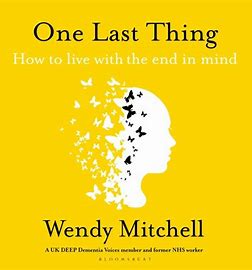
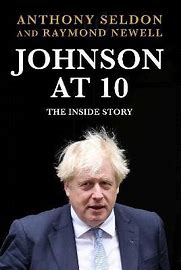
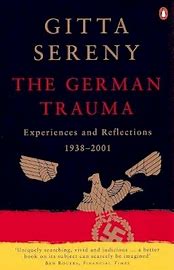
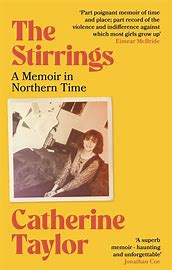

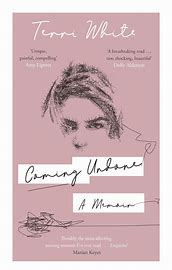
Celebrating Michel Butor
Posted by cathannabel in Michel Butor on September 14, 2023
Today would have been Michel Butor’s 97th birthday – he died just before his 90th, in 2016. I have written elsewhere in this blog about how I discovered his work, back in 2005-06, and the impact that his novel Passing Time (L’Emploi du temps) had on me, as evidenced by my blog title, many of the pieces I’ve posted here, a PhD thesis, and a couple (soon to be three) chapters in academic books. I also have something more personal than the shelves of multiple copies of his novels and other works (in English and German, as well as French) and of critical studies of his work.
In 2008, already immersed in his work and steering my undergrad assignments in his direction wherever I could, I wrote to him, hoping to start a correspondence that might enrich my understanding of L’Emploi du temps in particular. What I received was a postcard, an image cut in two on a diagonal, and then taped back together by him, with a warm and friendly message:
He writes:
Your letter took some time to reach me as I was on holiday on the Basque coast. Thank you for your interest in my books. Don’t hesitate to ask me anything, if you think my replies might help in your work. Have a great summer! Very cordially, yours, Michel.
I did write again in 2012, in hope rather than expectation, as I worked on my undergrad dissertation, and considered a PhD proposal, but I didn’t hear back. Butor’s wife Marie-Jo had died two years earlier, and I know now, as I didn’t then, how the loss of a partner has an impact on every aspect of one’s life, from the most profound to the most mundane. I can understand that an earnest enquiry about a book he’d written over half a century previously will not have been a priority.
But the impression of Butor that the postcard gave me is confirmed by many accounts of those who knew, worked with and interviewed him, and by this fascinating documentary, unfortunately not available with subtitles, but which shows a straightforward, warm and generous man, as well as a writer who experimented with language and with narrative, and whose work is richly human, who wanted, through his work, to change the reader, and to change the reader’s view of the world.
So, I am grateful for that postcard, for the thought and for the warmth, as I am grateful for the books, especially the one that has absorbed me for so long and fuelled my writing, and my academic life. That postcard is proudly displayed on my bookshelves, alongside those multiple copies of his books, and the bound copy of my thesis, and the many academic studies of his writing.


Passing Time is, of course, now available in a revised English translation, published by Pariah Press in 2021.
2023 Reading – Half-Time Report
Posted by cathannabel in Literature on June 25, 2023
My reading has returned, I think, to pre-bereavement patterns, both in terms of how much I read, and the range of what I read. And books have been, over the last six months as always, solace and company, escape and engagement with other worlds and lives. Perhaps different things make me cry now when I read – I’ve gained a whole lot of other triggers to add to the ones I’d already accumulated over the years. And there’s been a certain sadness whenever I’ve started a new entry in a series that M and I both enjoyed, or something new by a writer that we both loved, that we can’t bicker about who gets to read it first, and we can’t talk about it afterwards.
I’ve split the list into fiction, poetry and non-fiction. I’ve tried to avoid spoilers but reading reviews is always risky, so you takes your chances if you read on. I haven’t listed absolutely everything but everything here is a book that I finished, and that I have something to say about – mainly positives, since I do this to share my enthusiasms rather than my disappointments. However, I do sometimes have a grumble about sloppy writing. I haven’t picked a definite top three, but I have starred the books that I feel most passionate about.
Fiction
Kate Atkinson – Shrines of Gaiety*
The writing is, as always, delicious, as are the characters. The Guardian describes the novel as ‘a heady brew of crime, romance and satire set amid the sordid glitz of London nightlife in the 1920s’. There are multiple plot strands but we never lose track (for long, at least) of the young women at the heart of the narrative, and we do quickly care what happens to them. Atkinson is in total control here – it’s skilful and has real heart, and I’m going to re-read it soon, as I tended to gallop through parts of it to find out what happened, and second time around I can just savour how she did it.
Pat Barker – The Women of Troy
Follow-up to The Silence of the Girls. There’s a third part to this, which doesn’t appear to be out yet, and this novel leaves many important narrative threads dangling. It’s a bleak, brutal retelling of the story, focusing always on the women, owned, appropriated, used and abused, always vulnerable to shifts in power and favour. Powerful stuff.
Yvonne Battle-Felton – Remembered
The women at the centre of Remembered are not so different from the women of Troy. They’ve been enslaved, they are abused, they find dangerous ways to resist. The focus is on one woman, Spring, as she tells her story to her dying son. It’s often a tough read, but a rewarding and important one – we may feel we’ve heard enough of the horrors of slavery but those stories must continue to be told, and that is the real theme of the novel.
Britt Bennett – The Mothers*
Bennett’s debut – I read The Vanishing Half last year, which I loved, and this is also very fine. I love the way the older women in the community form a kind of Greek chorus, sometimes as judgemental as the stereotype of older church women suggests, but also looking back to their own youth, to their own heartaches and tragedies and mistakes.
Mark Billingham – Rabbit Hole
A stand-alone from the author of the Tom Thorne series. I hadn’t realised this so was awaiting Thorne’s appearance for quite some time… It’s a gripping plot, with a narrator who is the very definition of unreliability, and the psychiatric ward provides a powerful setting. My only quibble is that the ‘who dunnit’, when revealed, is a bit throw-away and anti-climactic. Clearly that wasn’t Billingham’s main concern, but one feels a little cheated.
Joyce Cary – Herself Surprised
One of my mum’s favourite writers, and one of her favourites of his. The portrayal of the central character is so good – her voice is idiosyncratic (she uses loads of metaphors and similes, piling them on top of one another, mostly drawing from domestic life) and honest. She’s not admirable but she wins our sympathies. The other two books in the trilogy foreground the male characters so it will be interesting to see how Cary pulls off the switch in perspective.
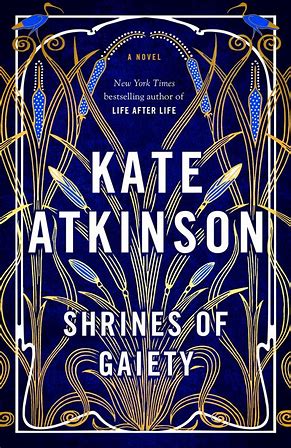





Jane Casey – The Close
The latest Maeve Kerrigan. Another cracking plot, which sizzles not only with the tension of the investigation, and the constant doubt as to who can be trusted, but with the tension between Maeve and her colleague Josh Derwent.
Will Dean – Bad Apples
The fourth Tuva Moodyson novel, this is creepy as hell, atmospheric and gripping.
A house on a lake, somewhere in east Germany, that passes from its Jewish owners to an architect who pays only what the Nazi law requires him to, and from him to others during the post-war era, when the property is in the GDR, and so on through the years. We learn relatively little about the people whose lives here we glimpse – we know the fate of some (the only time we leave the house on the lake), others seem to vanish, or what we are told is ambiguous and uncertain. Brilliantly constructed and powerful.
Nicci French – Secret Smile/The Unheard
These psychological thrillers are so highly rated that I read two in quick succession. This was a mistake. There’s a long gap between the publication of the two novels, so it’s maybe pure chance that I read two that had such similar plots, and identical tropes (the ‘secret smile’, the man who kisses an ex-partner too close to the lips). They’re very well written but as I read the second of the two the irritation of realising, ok, we’re going here again, overcame any other pleasures of reading. I may try another one at some point.
Bonnie Garmus – Lessons in Chemistry
Everyone seemed to be reading this, and everyone told me to read it. I thoroughly enjoyed it – it was very funny, but made me cry quite a lot, it was wittily written and, as the Guardian reviewer put it, ‘that rare beast; a polished, funny, thought-provoking story, wearing its research lightly but confidently, and with sentences so stylishly turned it’s hard to believe it’s a debut’.
Linda Grant – The Story of the Forest*
A remarkable family saga, from Latvia to Liverpool, exploring the idea of the stories that bind a family together. It ‘continues her exploration of how chance, contingency and unintended consequences intersect with history’s larger movements; how personal narratives are shaped not merely by what we think of as inescapable forces and events, but by moments of randomness and whimsy. Her characters are, as ever, mobile not only in a geographical sense, but in the way that their desires and motivations shift and adapt, influenced by memories of the past and intimations of the future’ (The Guardian).






Kate Grenville – Sarah Thornhill
I wasn’t aware when I read this that it was a sequel. It didn’t seem to matter – the plot was handled so skilfully that, although events covered in the first book (The Secret River) are crucial to the story of Sarah Thornhill, the book could stand alone (I will, however, go back and read the first). There’s a theme emerging in some of my reading this year – families and the stories they tell, and what those stories hide, and how past events resonate through the generations. Here the setting is Australia and both the convict past and the brutality meted out to the aboriginal inhabitants are powerfully depicted.
Elly Griffiths – The Last Remains
Is this the last Ruth Galloway? At least for a while? Fair enough – Griffiths has two other excellent series on the go, the Brighton mysteries and the Harbinder Kaur novels, as well as YA fiction. And, if I do treat this as the final outing for Ruth, Nelson, Cathbad and the rest, it is a very satisfying one. After all, if I want to spend more time in their company (and I will because I love them) I can always go back and start again at the beginning.
Lorraine Hansberry – Raisin in the Sun
I kept coming across Hansberry’s name, in documentaries about the civil rights movement, in James Baldwin’s writing, and elsewhere – she was the inspiration for Nina Simone’s ‘Young, Gifted and Black’. She died very young, and there isn’t a huge body of work but she knew and worked with anyone who was anyone (e.g. duBois, Belafonte, Robeson). Raisin was the first play by an African-American woman to be performed on Broadway. I haven’t seen the 1961 film, which uses the Broadway cast, but will track it down.
Robert Harris – V2
Harris’s trademark combination of meticulous and detailed research (here, into the technical challenges of the V2 rocket programme) and a gripping plot, with nuanced and complex characters (on both sides) works brilliantly again here.
Zakiya Dalila Harris – The Other Black Girl
This is a cracker. I had no idea where it was going, it kept on completely wrong-footing me. Often very funny along the way, it also conjures a powerful sense of paranoia. It’s her debut novel – I will look forward to where she goes next.
Philip Hensher – Scenes from Early Life
I read a lot about Partition last year, and in a way this is a follow-up to those narratives, dealing with the history of Bangladesh and how that nation emerged (bloodily) from what had been East Pakistan. Hensher is working with the early memories of his husband Zaved Mahmood, telling his story, or rather the stories that he himself was told (for much of the story he is a baby). Some of the peripheral characters, especially the musicians Amit and Altaf, have their own subtle, touching story to tell.






Mick Herron – London Rules
The fourth in the Slough House/Slow Horses series, and it is another cracker. Herron seduces you with gorgeous writing, and then Jackson Lamb ambles in, scratching his balls and farting prodigiously and poetry goes out of the window. But witty, sharp writing never does. The opening sequence was genuinely shocking even when one knows (sort of ) what to expect from Herron.
Anne Holt – A Memory for Murder
The third in Holt’s Selma Faelck series. Cleverly plotted, and with a fascinating protagonist, it’s a thoroughly good read.
Kazuo Ishiguro – Klara and the Sun*
Klara is an android, an ‘artificial friend’ bought to be a companion to a sick child. We have to figure out how this world works, we’re not spoon-fed explanations or context, and we see things through Klara’s eyes, as she figures out what it is to be human, and to be only nearly human. It’s beautiful, and very moving.
Paterson Joseph – Secret Diaries of Charles Ignatius Sancho
Fascinating invented diaries of the very real Sancho, escaped slave, abolitionist, composer and writer. Joseph has worked with what is known of his life (1729-1780), and acknowledges in a postscript that since completing the work he has discovered more of Sancho’s descendants. But it stands as a powerful filling out of the details, putting together of the fragments, that give us an extraordinary glimpse of an extraordinary man.
Barbara Kingsolver – Demon Copperhead*
Kingsolver takes Dickens’ David Copperfield and transposes his life to the Appalachians in our own or very recent times, where a chaotic childhood leaves the young Demon vulnerable to exploitation and abuse, constantly falling through the welfare safety net. Dickens’ characters are all here, updated/transformed. Demon’s authorial voice is brilliantly realised – self aware, honest, funny – and the tragedies of his life are powerfully felt even when we know the story and know where the various plot threads will lead us.
David Koepp – Cold Storage
Koepp is a Hollywood scriptwriter and that ability to ramp up the tension is evident in this bio/eco horror thriller. The characters aren’t given any very great depth but they’re engaging and the whole thing works brilliantly. Interesting to read this shortly before starting to watch The Last of Us, which has a related theme…
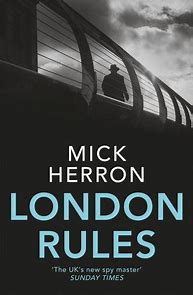

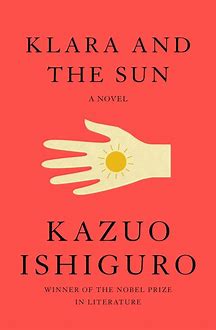



Aysin Kulin – Without a Country
The context here is fascinating – in the early days of Hitler’s regime, German Jewish scientists find opportunities in Turkey, where Ataturk is modernising the universities, through the Emergency Association of German Science Abroad, founded in Zurich in 1933 by a German emigrant, Philipp Schwartz. These German emigrés’ safe haven has indeed saved their lives, but they are not as welcome as it first appears. Kulin’s narrative takes us through the subsequent generations, as political tensions in their adopted homeland, as well as anti-semitism, challenge their sense of belonging.
Jennifer Nansubuga Makumbi – Kintu
I’ve read some other Makumbi – The First Woman, and her short story collection, Manchester Happened. Kintu was her debut, and it’s a family saga that takes us from the 21st to the 18th century and back again, through different generations of a family living with a curse. Its scale doesn’t ever get in the way of the characters living and breathing, and it’s a compelling read. It can be read as the story of a nation but fundamentally it is the story of a family, whose homeland changes shape over the centuries and whose fortunes change accordingly.
Livi Michael – Reservoir*
I’ve loved Michael’s other adult novels – most recently her War of the Roses trilogy – and this is exceptional. Much of it is set at an academic conference, but one where the various papers that are presented, of which we read substantial chunks, are gradually, directly or indirectly, exploring a mystery from the childhood of two of the delegates. The themes are responsibility – in the legal and moral sense, guilt, secrets and lies. Notwithstanding the setting, it never feels ‘academic’, rather, it is as gripping as a thriller.
Denise Mina – The Red Road
The fourth of Mina’s Alex Morrow series, and this one is particularly complex and compelling. Mina’s world is a bleak one, and as in so many of her books she fills out the lives that we often prefer not to see or think about, as well as, in this novel particularly, those in positions of influence and power. Alex herself is entirely believable – she’s encumbered not with some quirk or interesting flaw but with kids and family life – and imperfect, but hugely sympathetic.
Ann Patchett – State of Wonder
There are strong echoes of Heart of Darkness in this tale of a woman sent by her pharmaceutical company employers to track down a researcher deep in the Amazon rainforest, and find out what happened to the previous person sent on that same quest. The plot switches rapidly from the mundane misfortunes of travel (Marina’s luggage goes repeatedly AWOL) to the life-threatening hazards of that environment and some of its inhabitants, and to issues of science and ethics. It’s fascinating and engaging.
Louise Penny – A Rule against Murder/How the Light Gets In
The fourth and ninth Inspector Gamache novels, with the series’ trademark mix of (almost) cosy and very dark.
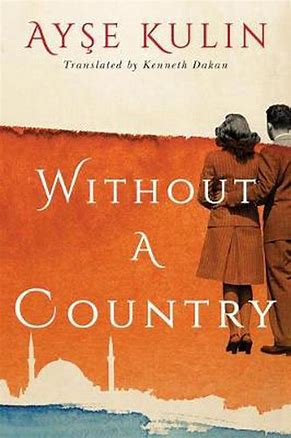

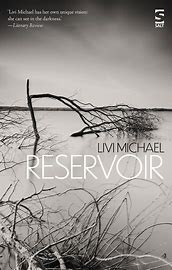

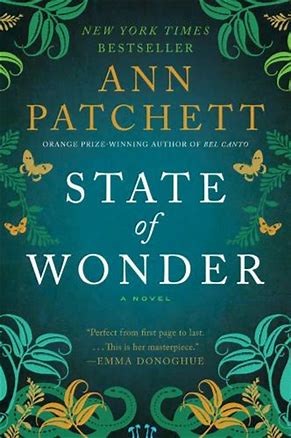

Charlotte Philby – A Double Life
One woman leading two lives, trying to keep them separate, seeing them inexorably head for collision, whilst another woman digs for the truth behind something she thought she had witnessed. Neither is heroic, nor entirely likeable, but Philby manages her plot with skill and it grips right to the final page. And yes, Philby is the daughter of one Kim Philby, who knew all about double lives…
Ian Rankin – A Heart full of Headstones
Rebus is weary and unwell, and his past dodginess (he was never bent but he did bend the rules) is catching up with him. Siobhan is tired too and not just tired of having to manage Rebus’s interventions in the cases she’s working. It feels as if the series is drawing to a close – one more book in Rankin’s deal with his publisher – which feels right and timely. There are series in which the protagonists never seem to really age, or lose heart, or get sick (looking at you, 87th precinct) and Rebus has always been far too real to go on forever, without consequences. It’s a fine addition to the series, whether or not it is the penultimate.
Jane Rogers – Conrad and Eleanor
As the Guardian puts it, ‘In its every cell this remarkable novel reproduces the dialectic of a long marriage’. There is more to it than this, with a plot (sub-plot?) relating to Conrad’s work in an animal laboratory, but it is the relationship between them (is it doomed? Dying? Or is there still something profound there?) that fascinates.
William Gardner Smith – The Stone Face*
This is a very remarkable novel, whose existence I was unaware of for a long time, and of which I was then unable to find a copy. Smith was a black American writer, based for a long time (like many others, James Baldwin in particular) in France, and this novel explores the experience of the African-American in Paris, and the nature of racism, in relation to the Algerian/North African community, culminating in an account of the 1961 massacre of demonstrators by the Paris police. That latter event has been something of an obsession of mine, ever since watching Michael Haneke’s film, Caché, in which it plays a small but very significant role. The massacre’s significance lies in part in the highly effective cover-up, so that it is only in the last few decades that it has been widely known about, and in the fact that the head of the Paris police at the time was Maurice Papon, who had been an enthusiastic collaborator during the war, helping to organise the deportation of Jews from Bordeaux. But the novel is fascinating on many levels and it’s good to see that it’s now available in paperback.
Elizabeth Strout – Amy and Isabelle
I’ve been devouring Strout’s novels for the last few years, but not in any particular order – this one is her debut and it is tremendously assured. The relationship between daughter and mother, and the crisis in Amy’s life which shakes that relationship to its foundations, are beautifully drawn.
Nicola Williams – Without Prejudice
A legal thriller by a black British lawyer, first published in 1997 and reissued now through Bernardine Evaristo’s Black Britain: Writing Back initiative. It’s a thriller in its own right, with a twisty plot that skewers corruption in the legal profession, but it’s also an account of what it is like to be a black lawyer in the British judicial system. The protagonist’s experiences (being assumed to be the defendant, for example) reminded me very much of Alexandra Wilson’s memoir, In Black and White, just in case any one was thinking that things must have massively improved in the last quarter of a century…






Poetry
Poems inspired by the death of Faber’s wife Eva, from cancer. Some were written during her illness, others after her death. These are tough to read. There’s no sentimentality here, the poems confront the brutal physicality of the illness and of death itself. That can be shocking but also a relief, in a way, to see it there on the page, not shrouded in euphemism and piety.
Samuel Fairbrother – A Promenade
The latest publication from Pariah Press, this is poetry written in direct response to music (Shostakovich’s String Quartets) and to be read alongside that music. The performance which inspired Fairbrother took place on the day that Russia invaded Ukraine, and that event is also present in the poetry and, somehow, in the music.
Non-Fiction
Peter Bradley – The Last Train: A Family History of the Final Solution
Bradley didn’t know, until his father died, that the man he’d known as Fred Bradley was/had been Fritz Brandes, and that the family story was a story of the Holocaust. Bradley charts his father’s journey to survival, and finds the traces of the family members who were murdered, setting those individual narratives in the context of what was happening to millions of others across Europe.
Sarah Churchwell – The Wrath to Come: Gone with the Wind and the Lies America Tells
A while back one might have thought that this book’s passionate arguments were a bit overwrought or unnecessary – surely we have moved on? But the Confederate myths have all resurfaced in recent years, the flag is everywhere, and those who carry it are often no longer hiding the racism that is an inescapable part of the mythology. Churchwell uses Gone with the Wind (primarily focusing on the book, though with a lot of interesting insight into how the film sanitised some of the book’s breathtaking racism) to forensically examine those myths and their contemporary impact.
Steve Davis & Kavus Torabi – Medical Grade Music
This is a delight. I always enjoy being in the company of people who are enthusiastic about music, even when I don’t share their particular passions. Both Davis and Torabi are engaging writers, and have led me back to CDs in my own collection (Henry Cow’s Legend, for one) through their infectious excitement about them.
Hanna Flint – Strong Female Character
I wasn’t quite expecting the strongly autobiographical and very personal focus of this book, but Flint uses that focus to explore how the movies deal with women’s lives, how they address sex (solo and with partners), body image, our relationship with food, working life, race, friendship and love. It’s fascinating, and with lots of unexpected insights.





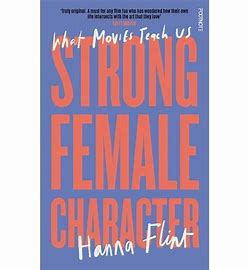
Angela Harding – Wild Light: A Printmaker’s Day and Night
One hundred illustrations – prints, drawings and photographs – illustrating, as the title says, a day and a night. Harding’s images are beautiful and the book is a joy.
Katy Hessel – The Story of Art Without Men
Beautiful, both in terms of the images, and the accounts of so very many women artists through the centuries, many of whom have never had the place they deserved in art history. As Tracy Emin said, it won’t restore the balance on its own, but ‘this is a good start’.
Jill Nalder – Love from the Pink Palace
Jill is the real-life version of her namesake from It’s A Sin. Many of her memories of the young gay men who she loved, lived with and watched – in too many cases – die, made their way into the series, along with creator Russell T Davies’ memories of the same period. The atmosphere of the time comes across incredibly vividly in Nalder’s account, which is moving, funny and horrifying.
Helen O’Hara – Women vs Hollywood: The Fall and Rise of Women in Film
Where did the women directors of the very earliest days of cinema go to? Why did they stop getting hired, or funded, and why has it taken a century to get back to anything resembling the prominence of women in the industry in those earliest days? O’Hara’s fascinating account is passionate, meticulously researched, and engagingly written.
Nicholas Shakespeare – Six Minutes in May: How Churchill Unexpectedly Became Prime Minister
One of the aspects of WWII about which I knew very little was the Norway campaign. I recently watched the film Narvik, which gave a pretty accurate portrayal of part of that campaign, which was not, really not, our finest hour. However, despite that, and despite Churchill being to a significant degree responsible for the failure of that campaign, it was instrumental in ensuring that Chamberlain resigned and Churchill became PM. Shakespeare’s book takes the reader through a day by day – and sometimes minute by minute – account of what was happening, in Norway, and in the House of Commons, informed by the recollections of his great-uncle Geoffrey, who was there (in the HoC). There was so much here that was new to me, and it was even more gripping when I realised at several points that I was reading it on the exact 83rd anniversary of those events.
Paul Thompson and John Watterson – Beware of the Bull – The Enigmatic Genius of Jake Thackray
I can’t remember how we got into Thackray – we probably saw him on TV, and then got an LP or two. I know we used to be reduced to tears of laughter by some of those songs. There’s almost always an element of melancholy though, as funny as they are, and some darkness too. This biography makes some sense of all of those elements and took me back again to the songs. It hurt a little bit though, to be laughing at ‘The Statues’ all on my own.






Thanks to all of the writers who have entertained, diverted and informed me, who have expanded my horizons, taken me to places I have never been or could never go, shown me lives very different to mine and enabled me to connect with them.
2022 Reading: Full-time Report
Posted by cathannabel in History, Literature, Personal, Second World War on December 16, 2022
I’m still not reading as much as I used to. It’s the silence that’s the problem. Lord knows I used to tut sometimes when I was reading and he broke my train of thought with his own train of thought, but Lord knows I would love to have him do that now. So I turn to the TV sometimes when in the past I would have turned to a book, just to break the silence. Nonetheless, I’ve still normally got two or three books on the go – one on the Kindle and a couple of physical books, usually one fiction and one non, and nonetheless it’s still quite an eclectic list. As always, I haven’t listed absolutely everything – I want to share my enthusiasms rather than my disappointments – and as always I have tried to avoid spoilers but make no guarantees. Top reads this half-year? Jan Carson’s The Raptures, Abdulrazak Gurnah’s Afterlives, David Park’s Travelling in a Strange Land. From the first half of the year, I’d pick out Alan Garner’s Treacle Walker, J L Carr’s A Month in the Country, and Sarah Moss’s The Fell. Since I make the rules for this blog, I shan’t require myself to choose amongst those six titles.
Fiction
Pat Barker – The Silence of the Girls
This, and its sequel The Women of Troy (which I have yet to read) tell the familiar story (familiar not only from Homer but from countless retellings – in my case the first encounter was with Roger Lancelyn Green’s Tales of the Greeks and Trojans and The Luck of Troy) with the focus shifted to the women. In this one, the central role is that of Briseis, handed over to Achilles, appropriated by Agamemnon and retrieved by Achilles, all as part of the spoils of war. It’s a grim tale, beautifully told.
Thomas Bernhard – The Loser
Sebald and Bernhard are often linked, and I figured it was about time I gave the latter a go. The choice of book was a foregone conclusion once I discovered that The Loser was about (in part) Glenn Gould, who fascinates me. There are elements of the style that certainly recall Sebald (any influence was from Bernhard on Sebald) – the novel, like Austerlitz, is one unbroken paragraph, and the narrator’s voice constantly makes it explicit that these are his thoughts, and when he was thinking them (‘I thought, as I entered the inn’, ‘I thought in the inn’ , ‘he said, I thought’, etc) which reminded me again of Austerlitz.
Frances Hodgson Burnett – The Shuttle
I adored The Little Princess and The Secret Garden as a child (never read Fauntleroy, as far as I can recall) and this adult novel was a delight too. It’s quite Gothic in places, but punctured with humour, and with a hero (Bettina) who shines from the pages. The theme is intermarriage between British aristos (broke, with run-down country estates to maintain) and wealthy American heiresses but it’s also a very perceptive (based on first-hand experience) account of coercive control.
Jan Carson – The Raptures
This is stunning. I had no idea for most of it where it was heading, what the answers to the questions were going to be, and indeed ultimately there were no firm answers. But it grips on every page, its characters live and breathe, even when they’re no longer living and breathing. It’s a supernatural mystery, a who (or what) dunit, an allegory about plague and pandemic, a coming of age narrative, a portrait of a small Protestant Northern Irish community. Never mind all that, just read it.
Ann Cleeves – The Rising Tide
A new Vera! I wasn’t sure Cleeves was still writing Veras. Anyway, very pleased to get this and it’s as enjoyable as ever.
Robert Galbraith – Ink Black Heart
Oh dear. I have enjoyed all of the Cormoran Strike books so far, although few of them need to be the length they are. But this one desperately needed an editor to tell her to slash great chunks of the book so that it’s coherent, and particularly to cut back the use of verbatim online conversations (three columns of different conversations, going over several pages) which are incredibly hard to read and to follow. There’s also the issue of the subject matter – online abuse – and its proximity to the author’s life on Twitter and other social media over recent years. I think it’s too close for her to be able to examine that world with any objectivity and the book is a mess.





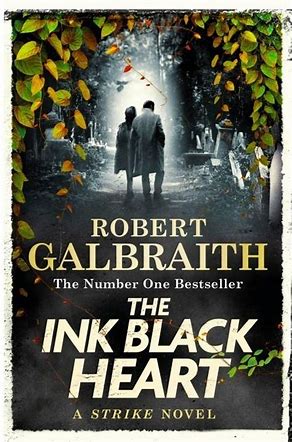
Elizabeth Gilbert – City of Girls
I read The Signature of All Things a few years back and loved it. Still haven’t read Eat Love Pray or whatever it’s called, fairly sure that would not be my cup of tea. But she’s a lovely writer – City of Girls is captivating, and very witty, it sparkles like one of those screwball comedies from the era in which the book is set. And then the tone shifts, and whilst it’s every bit as witty it’s also darker and deeper and very moving.
Graham Greene – The Quiet American
I honestly thought I’d read all of Greene, many years ago (he was a favourite of my mum’s). But this one had eluded me and it’s a fine example of his style and of his preoccupations.
Elly Griffiths – Bleeding Heart Yard
This is Griffiths’ third novel featuring detective Harbinder Kaur, now relocated in that London, and it is hugely enjoyable. As always with Griffiths, the characters are drawn with humour and affection (mostly), and with compassion and insight.
Abdulrazak Gurnah – After Lives
Gurnah was awarded the Nobel Prize for Literature in 2021 but his name had never registered with me. I shall put that right now and read his other books, because this one was excellent. Set in what is now Tanzania, in the early 20th century when the area was a German colony, it sweeps across that century, through the first and second world wars, the shifting boundaries and colonial rulers, but is always centred on the lives of a handful of characters who are battered, in different ways, by these forces. Despite the scale and the horror of what is unfolding, it manages to be, in relation to these people, gentle and subtle and, somehow, hopeful.
Yaa Gyasi – Transcendent Kingdom
I’d read Homegoing a couple of years ago, an epic family history that begins in Kumasi, Ghana, and crosses continents and centuries. The scale in Transcendent Kingdom is much smaller, although it still reaches back to Kumasi, but the central family is contracting rather than expanding (as the narrator says, “There used to be four of us, then three, two. When my mother goes, whether by choice or not, there will be only one”. Its concerns are philosophical, scientific even, as the central character is a neuroscientist, her research intimately connected with her family’s tragedy.
Robert Harris – Act of Oblivion
After Cromwell’s death, those who signed King Charles’ death warrant are on the run, and supporters of the new King are determined to track them down. Harris cleverly builds the tension but also gives us insight into both sides, so we as readers have to keep switching our perspective, as we are with first the regicides and then the manhunter, and we see how both are driven by the absolute certainty that they and their cause are absolutely right.






Mick Herron – Live Tigers/Spook Street
The third and fourth of the Slough House novels and they’re as sharp and funny and dark as ever. I look forward to reading the rest of the series, and to seeing the dramatisation of the second book – Gary Oldman has a marvellous time as Jackson Lamb, really letting rip, in every sense.
Tayari Jones – The Untelling
Secrets and lies and their toxic effects upon relationships are the theme here, and Jones is perceptive and subtle in her portrayal of Aria(dne) and the small circle of people who matter to her.
Stephen King – Fairy Tale
This resembles his 1984 collaboration with the late Peter Straub, The Talisman, more than it does his most recent spate of novels. That’s deliberate, I’m sure – King often makes references to his other books, sometimes in passing, sometimes to create resonant connections (see his various books set in or around Castle Rock, for example), and there are some nice echoes here. He and Straub had talked about another collaboration, although it had never got off the ground, so maybe we can take this as a tribute. It’s King on top form, in any case.
John le Carré – Silverview
Ah, the last le Carré. Edited by his son, from what was a virtually complete manuscript. It’s not the best le Carré but it’s bloody good le Carré and it has the melancholy and the anger that have characterised his work in later years.
Attica Locke – The Cutting Season
A stand-alone from Locke, after her two excellent short series of crime novels. This is crime that drags one back into the past, the slavery past, and it is tense and gripping stuff.
David Park – A Run in the Park/Travelling in a Strange Land
Beautiful writing. A Run in the Park is the gentler read, although there’s plenty of emotional heft in there. Travelling in a Strange Land goes to dark places but in both books there is always darkness and light, loss and love, grief and hope.






Sara Paretsky – Tunnel Vision
The eighth in Paretsky’s excellent detective series, featuring PI V I Warshawsky battling corporate crime and corruption. I’ve read these in random order as I got hold of them, so at some point I will try and fill in the gaps.
Ann Patchett – Bel Canto
My first Patchett – this is compelling and often moving. It’s about a terrorist attack, and the fate of the hostages, but its also about love, beauty and music.
Louise Penny – The Madness of Crowds
Inspector Gamache series, no. 17, the most recent. As with the Paretsky, I’m reading these in a totally random order, so there are references in this one to events which I don’t yet know about, but the main plot stands alone. As always with Penny, there are times when Three Pines seems just too magically cosy but she always undercuts that with the crime and its motivation, which are anything but.
Bapsi Sidwha – The Ice Candy Man
Many years ago I read Sidwha’s debut novel, The Crow Eaters, which I remember loving even if its plot has faded from my memory. The setting is Lahore, once in India, then allocated to Pakistan at the time of Partition. The Ice Candy Man (also published as Cracking India) starts in the period leading up to Partition and confronts the horrors of what happened, through the eyes of a child, who at first has no real notion that the different communities (Sikh, Parsi, Muslim, Hindu, Buddhist, Christian) are potentially a threat to one another. Indeed, her home is a place where people from these communities meet and bicker and insult one another in a largely friendly way, and when violence is predicted insist that they will stand by their friends. We see things through Lenny’s eyes, not all of which she understands, not all of which adults are prepared to explain to her. It’s unflinching, but also often funny and touching.
Zadie Smith – White Teeth
I struggle with Zadie Smith and am still trying to work out why. Her characters never quite seem to live and breathe, as if she’s at too much of a distance from them to really bring them to life. This, her debut, didn’t change my view, unfortunately.
Russ Thomas – Nightwalking/Cold Reckoning
Parts 2 and 3 of Thomas’s Sheffield-based trilogy which began with Firewatching. Excellent plotting and interesting, complicated lead characters.

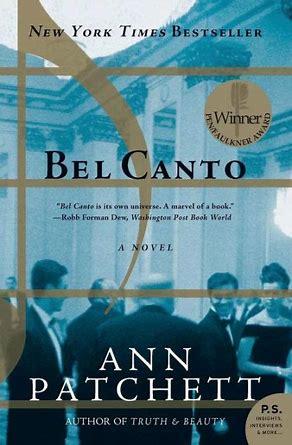
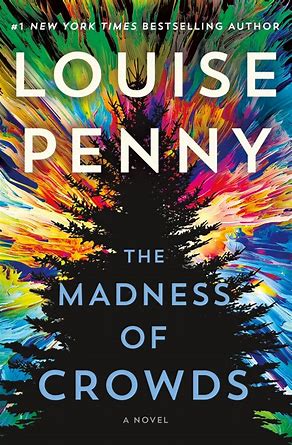

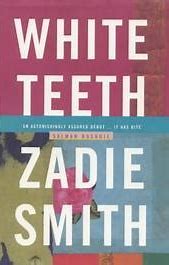

Anne Tyler – Redhead at the Side of the Road
I hadn’t read any Tyler for ages, not since being so disappointed with Vinegar Girl (kind of a take on Taming of the Shrew, but it really didn’t work). But I have read most of her stuff, and I love most of her stuff (top two are Saint Maybe and Breathing Lessons, I think). This one is a lovely variation on ‘a perennial Tyler theme: the decent, mundane, settling-for-less kind of life whose uneasy decorum is suddenly exploded by the random, the uncontrolled, the latent sense of what might have been’, as The Guardian’s reviewer put it.
Non-Fiction
Molly Bell – Just the one Ice Cream?
I read this account of widowhood, by a family friend, a few years back when it was first published. Reading it again now was a remarkable experience – so many of Molly’s observations are ones that I can relate to – I kept thinking ‘Yes! Yes, that’s it!’. It’s insightful, honest and warm.
Sarah Churchwell – The Many Lives of Marilyn Monroe
Having felt rather grubby after watching Blonde I thought this would be a good antidote. It’s the story of the stories of Monroe’s life, of the clichés and stereotypes, the biographies and memoirs and attempts to uncover the ‘real’ Monroe. It’s incisive and rigorous and fascinating. It was published before the film of Blonde came out, but includes Joyce Carol Oates’ novel in her analysis, along with Norman Mailer, Arthur Miller and a host of lesser lights whose accounts have been published over the years.
Laura Cumming – On Chapel Sands: My Mother and other Missing Persons
A very intriguing memoir/detective story. Cummings gradually reveals the secrets of her mother’s early life, and at each step shows how she had to reevaluate everything she thought she knew, and her understanding of the people involved. If it were fiction it would be a great read but it gains depth through the knowledge that it is a true story – it’s deeply personal, and terribly sad.
Mike Duncan – The Storm before the Storm
The rise of the Roman Republic, as Duncan tells it, was the beginning of its fall. Fascinating, accessibly written account.
Sebastian Haffner – Defying Hitler: A Memoir
Haffner (real name Raimund Pretzel) wrote this account of Germany in the First World War, the Weimar Republic and during the rise of Nazism, in 1939, after he had emigrated to England. It was only published in 2003, having been left unfinished, as Haffner worked on his less personal account, Germany: Jekyll and Hyde, and was collated for publication by his son. It is therefore written without hindsight, at least without the knowledge of what lay inexorably at the end of the Nazi road, and thus its insights are fresh and passionate, exploring how Germans came to choose Hitler.


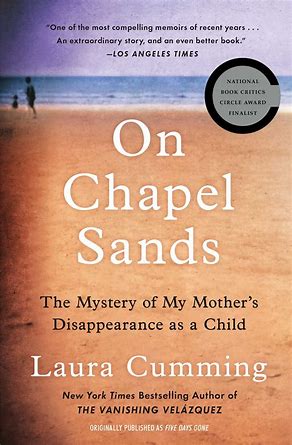
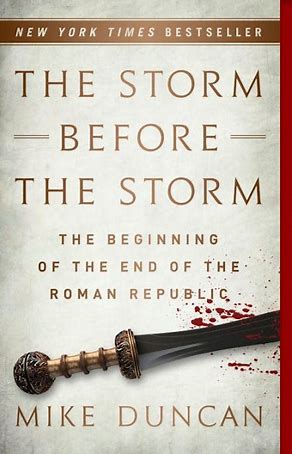


Sudhir Hazareesingh – Black Spartacus: The Epic Life of Toussaint Louverture
Epic is right. An extraordinary man, with an extraordinary life and achievements, which resonate to this day (as I was reminded in the cinema the other day, watching Wakanda Forever…)
Hans Jahner – Aftermath: Life in the Fallout of the Third Reich, 1945-1955
An excellent study, exploring many aspects of the post-war period, and taking the story further, beyond the bomb sites and the hunger, to recovery, and division. He draws on a number of memoirs, often from women, which shed light on daily life, on culture and politics, on work and money. It’s rigorous but entertainingly written, often with a wry humour.
Michelle Obama – Becoming
Great stuff – she writes interestingly and engagingly, about her life before she hooked up with Barack as well as showing us his presidency from her perspective and that of the family. I would have liked to hear her account of the years after his presidency ended – maybe another volume will be forthcoming…



My reading this year has taken me out of my own time and place and as always I feel enriched by it, I feel my sympathies have been extended, as George Eliot puts it. I’ve been entertained as well as educated, often at the same time, and I’ve been moved to both laughter (laughing out loud is something I do too little of these days, living alone) and tears (well, no shortage of those, nor any surprise to those who know me, even before recent losses). I am deeply grateful to all of the writers with whom I’ve shared 2022 and who, in their various ways, have helped me through it.
2022 Reading – Half-Time Report
Posted by cathannabel in Literature, Personal on June 30, 2022
I’ve read a lot less so far this year than in the first half of 2021 – half as many books, in fact – despite the fact that back then I was intensively working on my PhD thesis, trying to finish and submit it by the end of the summer (spoiler – I did, and was awarded the doctorate in May 2022). My ability to concentrate, and to sleep well enough at night not to fall asleep over a book in the daytime, is still impaired following the loss of my husband, but for several months of this year was also limited by the painful aftermath of knee surgery. However, I did read (and the flip side of the surgery recovery was relative inactivity), and it’s a reasonably eclectic selection. As always, I try to avoid spoilers, but you takes your chances if you read on. And, as always, I have missed one or two books out that really weren’t worth drawing anyone’s attention to. I haven’t picked out a winner from this half-year’s crop, but I have starred those books which had the greatest impact on me and which I’m most eager to share.
FICTION
Ben Aaronovitch – Amongst Our Weapons
The latest in the funny, engaging and often rather magical (yes, it’s about magic, but there are so many moments that achieve that, rather than just describing it) Rivers of London series. The interface between ‘the weird stuff’ and regular policing never fails to entertain (e.g. the senior copper who won’t take any lip from witnesses, whatever they say they’re the god of).
Rumaan Alam – Leave the World Behind
Very, very unsettling. Especially when, whilst I was reading it, on holiday with friends, we had an episode when none of us could get internet on our phones, and there was this weird looking cloud up ahead… Can say no more without spoilers but it’s excellent and unnerving.
J L Carr – A Month in the Country*
This is beautiful. A tender gem of a book. There’s joy here, something almost magical in the uncovering of the long-hidden mural, which mirrors the gradual revelations about some of the characters, but there’s such deep sadness too. Remarkable.
Sinead Crowley – Can Anybody Help Me?
A decent thriller, with an interesting setting, in the world of ‘mumsnet’ type fora, where people seek reassurance and online friendship via online identities, but end up giving away more about themselves than they intend.
Will Dean – Black River
Third outing for Dean’s deaf female detective, Tuva Moodyson. It’s a dark and gripping tale, the lead character is fascinating and I will certainly find the first two in the series and then read on.
Maurizio de Giovanni – The Bastards of Pizzofalcone
Hard-boiled Naples-set Italian crime. The series has been compared to Ed McBain’s 87th Precinct novels, which we read voraciously for years (it may still be going on, I’m not sure, with Steve Carella et al mysteriously un-aged). There’s an earlier novel, The Crocodile, which I haven’t read, but must do so.


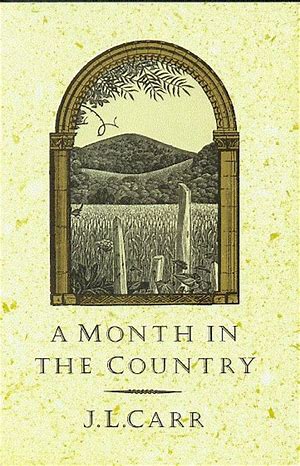



Bernardine Evaristo – Mr Loverman
This is lovely – we see our hero through his own eyes and through those of other people close to him, and he isn’t who he initially seems to be. There is warmth and humour and real sadness, and one ends up kind of rooting for all of the characters, even when they’re most at odds with each other.
Penelope Fitzgerald – The Bookshop*
Low-key and heartbreaking, and beautifully written. The initial reviews when this appeared in 1979 were screechingly condescending – ‘a harmless, conventional little anecdote’, according to The Times – but there have been more discerning readers since. It reminded me a bit of Dorothy Whipple – it may appear gentle but it’s razor sharp.
Alan Garner – Treaclewalker*
Every Alan Garner book brings with it echoes from every other Alan Garner book, including his memoir, Where Shall We Run To? It’s all part of this rich weave of folk tales, childhood memories, of place and landscape. His style is as spare as ever and the rhythms of his writing as mesmerising as ever.
Winston Graham – Poldark
I started binge reading the Poldark series (which, surprisingly, I never read during my historical fiction obsessed teens), after my husband died and I needed reading matter that was not going to challenge or break me. They are very well written, and clearly well researched, the plots were familiar from the more recent TV adaptation (at least for the first five of the series), and very enjoyable.
Elly Griffiths – The Locked Room
The latest Ruth Galloway novel, set just at the start of the pandemic, which is beautifully well handled and conveys the strangeness and the anxiety of that time.
Robert Harris – Enigma/The Fear Index/Pompeii/The Second Sleep
I had a bit of a binge on Robert Harris, evidently. They’re all very different. Enigma fed into my long-standing fascination with WWII codebreaking, with a plot blending actual events with invention, but thoroughly researched and much better than the film of the book. The Fear Index is a highly intriguing contemporary thriller, however probable or otherwise its central premiss may be. Pompeii is, unsurprisingly, a historical account of the destruction of the city, which gives us not only the individual and social dramas, but the scientific background too, whether in terms of volcanic eruptions, or the engineering of water supplies – gripping and fascinating, even though of course we know what’s coming. The Second Sleep is most intriguing – I won’t say anything about the plot because you have to read it and pick up on the subtle hints and clues before things become clear (and if anyone reads this and Colson Whitehead’s Harlem Shuffle, which I talk about below, there’s a surprising link).




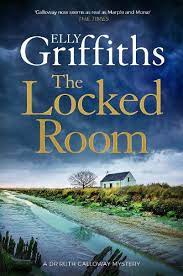

Melissa Harrison – All Among the Barley
‘As an evocation of place and a lost way of life, Harrison’s novel is astonishing, as potent and irresistible as a magic spell’, as the Guardian reviewer puts it. But there’s nothing romantic or sentimentalised about it, and there are darker undercurrents as national politics starts to infiltrate the life of the countryside.
Tayari Jones – Silver Sparrow/Leaving Atlanta*
I read An American Marriage last year, and loved it, so I followed it up with these two. Silver Sparrow explores the lives of two sisters, who share a bigamous father. The Guardian reviewer called it ‘moving, intimate and wise’. Leaving Atlanta was Jones’ debut and is a response to the Atlanta child murders (see also James Baldwin’s Evidence of Things Not Seen), drawing on her childhood in that city at the time. It’s compelling and dark, and offers a different, child-centred insight into these strange and deeply troubling crimes.
Philip Kazan – The Black Earth
A bow drawn at a venture, but I very much enjoyed this account of WWII in Greece (about which I knew very little) and the internecine battles which engulfed the country so that the bloodshed didn’t end with the end of the war. It’s got a romance at its heart, but it’s not romantic fiction, it’s well constructed, dark and gritty.
Barbara Kingsolver – The Bean Trees
Kingsolver’s debut. Well worth reading, though it’s kind of softer than some of her later work, verging on sentimental.
Malcolm Lowry – Under the Volcano*
A friend told me this was his absolute all-time favourite book, and I had to admit I’d never read it. I have now remedied that, and I can entirely see how one could become lost in it, and obsessed with it. I would not dream of offering any insights without a re-read, but I can still summon up its woozy, shifting realities and its deep sadness.
Val McDermid – 1979
One can practically smell the cigarette smoke in this thriller set in a newspaper office in, oddly enough, 1979. McDermid at the top of her game. I love all her work, except for the Tony Hill/Carol Jordan series which I have never got on with. Soz Val – that still leaves a lot for me to enjoy!
Dervla McTiernan – The Murder Rule
I was disappointed in this, having enjoyed a couple of her others (The Ruin and The Scholar) very much. This is a stand-alone, and the setting is the US rather than Ireland. Neither the plot nor the characters entirely convinced me, I’m afraid.






Sarah Moss – The Fell*
One of my favourite contemporary novelists, and this is a remarkable, powerful novel. It’s set mid-pandemic, with one character shielding, another self-isolating after contact with Covid, and it explores subtly and sensitively the sense of ‘accumulating dread’ as Moss puts it. But the dread is less of Covid itself, more of the effects of isolation and confinement. Beautifully written, with the voices of the four protagonists creating ‘polyphonic momentum’.
Joyce Carol Oates – A Fair Maiden
A troubling tale, with echoes of Lolita, which was widely regarded as a disappointment from Oates. I think I agree – I’m not sure what she was attempting here (a reworking/reimagining of Lolita? To what purpose?). It is of course well written and the protagonist (the ‘fair maiden’) is an excellent creation.
Rob Palk – Animal Lovers
Very funny, and very touching. Palk has a delicious turn of phrase, but never lets the comedic elements turn the characters into mere jokes or caricatures.
Philip Pullman – Serpentine
This novella is set between the end of the His Dark Materials trilogy and The Secret Commonwealth, Vol. 2 of The Book of Dust. It seems slight, but it sheds light on the troubled relationship between Lyra and Pantalaimon. Eagerly awaiting the final part of the second trilogy…
Ian Rankin – Resurrection Men
I have read the Rebus novels in an entirely random order, and thought I had read this already but it turns out the plot is familiar from the TV adaptation – it matters not, I’m absorbed and entertained.
Donal Ryan – Strange Flowers
Ryan writes with such beauty and tenderness, about people and about landscape. I wasn’t entirely convinced by the story within the story, which took me out of the narrative that I was fully invested in, rather than enriching it or shedding light on it. But it’s a fine novel, even with that caveat, and will stay with me.




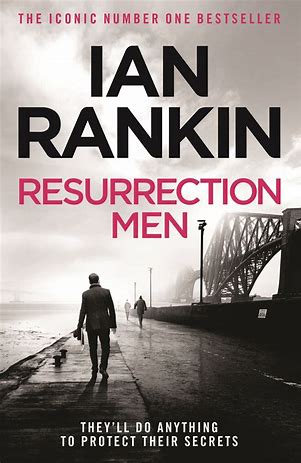
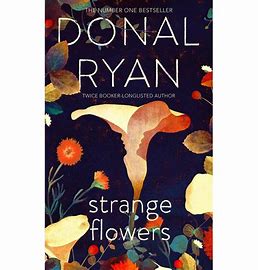
Sunjeev Sahota – China Room
I’ve read both of Sahota’s previous novels, and this one didn’t disappoint. Much of it is set in the 1920s, with a contemporary plot woven through, and it’s quite different in pace and tone to its predecessors. Subtly powerful and very moving.
Elizabeth Strout – Oh, William!*
Oh, Elizabeth! I thought I might have got used to Strout’s writing, and that it might therefore affect me less. I was mistaken. As always, her narratives overlap with one another and so we meet or hear of people and stories from other books, and with every novel the tapestry becomes richer. As the Guardian’s reviewer says, ‘the intense pleasure of Strout’s writing becomes the simple joy of learning more while – always – understanding less. “We are all mysterious, is what I mean,” says Lucy towards the close of this novel, leaving us already hungry for the next one’.
Russ Thomas – Firewatching
Sheffield set crime, very dark. This is Thomas’s debut and I will look out for more from him. The plot is complex, as are the characters, but it’s not driven, as far too many thrillers are, by the need to include ‘an incredible twist which you’ll never guess’. (That’s a bugbear of mine. Twist away, but it’s got to work with the plot and the characters, rather than just blasting in from nowhere simply to make us gasp.)
Lesley Thomson – The House with no Rooms
The fourth in the Detective’s Daughter series. The two leads are each decidedly odd, and not in the classic ‘detective with a fatal flaw/memorable quirk’ way, and the crimes are odd and troubling too.
Rose Tremain – Music and Silence*
This is fabulous. Set in the Danish royal court in the mid-17th century, it interweaves the stories of royalty and musicians and servants in the most intriguing and moving ways. And as the title would suggest, music plays a major, almost magical, certainly spiritual role.
Nicola Upson – Josephine Tey series
I started binging this series last year, and have continued. The conceit of having a writer of crime fiction getting involved in real crimes is hardly a new one, but it’s nicely done, and the period setting (the series has now reached the start of WWII) is interestingly handled, drawing out complexities that could only have been hinted at by Tey and her contemporaries.






Ocean Vuong – On Earth We’re Briefly Gorgeous
I found this difficult to read, and am not sure why. It may well be that my concentration, which has at times been sadly lacking this year, was insufficient to follow the narrative or fully appreciate the very beautiful poetic prose. Another attempt may be called for, given how strong the recommendations have been for this.
S J Watson – Before I go to Sleep
This was certainly gripping (and much better than the film, which had to skate over so many aspects of the plot that the improbabilities were sharply highlighted). I don’t think I quite believed in any of it, but I was fascinated to see how Watson put the narrative together and how he was going to resolve things. Entertaining.
Colson Whitehead – Harlem Shuffle
After the horrors of slavery in The Underground Railroad, and of a brutal reform school in The Nickel Boys, there is really quite a lot of hope, and much more scope for humour in this story of a furniture salesman’s attempt to negotiate the blurred lines and moral grey areas of Harlem in the 50s/60s. The writing is just as acute as in his other, darker novels, and the narrative just as gripping.

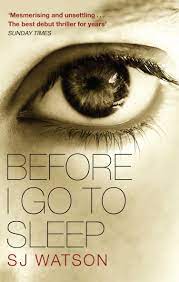

NON-FICTION
James Baldwin – The Evidence of Things not Seen
This is Baldwin’s essay on the Atlanta Child Murders (see Tayari Jones’ Leaving Atlanta, above). As always with Baldwin, it’s both passionate and lucid, and if it comes to no firm conclusions about guilt or innocence, that is hardly surprising since we appear to have moved on barely at all since Wayne Williams was charged with two of the murders back in 1982.
Antony Beevor – The Mystery of Olga Chekhova
I’ve read most of Beevor’s WWII history tomes, but this is a bit different. It’s a complex narrative, and one is very grateful for the Dramatis Personae at the front, to help the reader keep track of who is who (I remember reading Dr Zhivago as a teenager and struggling with the many variants of each character’s name). Gripping stuff.
Ruth Coker Burks – All the Young Men: How One Young Woman Risked it all to Care for the Dying
I feared this might be a bit sentimental, and also a bit too much God-stuff for my liking, but Burks is not given to soppiness, or to judgement. She’s an outsider, as a single parent in a rather conventional society, and her chance encounter with an AIDS patient – isolated, terrified, uncared for – immediately starts her on a path which leads to remarkable work both in exercising practical compassion and in lobbying for changes to the way people with AIDS are treated. The title isn’t as hyperbolic as it appears either – she lost friends and jobs, and ran the real risk of losing custody of her daughter due to her activism.
Michel Butor – Selected Essays*
A new translation of some of Butor’s essays on the novel. He writes with such clarity, so refreshing for those of us who have wrestled with some of his slipperier contemporaries (looking at you, Deleuze, in particular), and sheds light on his own four novels, as well as giving an insight into his later work.
Joe Hadju – Budapest: A History of Grandeur and Catastrophe
I had a tantalisingly brief visit to Budapest, as part of a Danube cruise, which left me wanting to know much more about the city. I am unlikely to visit in the near future given the political climate there, but the history is fascinating.
Debora Harding – Dancing with the Octopus
As the sub-title tells us, this is ‘The Telling of a True Crime’. And it really is about ‘the telling’ – the remembering and attempted forgetting, the being believed and, horrifically, not being believed. It’s a tough read and a gripping one.

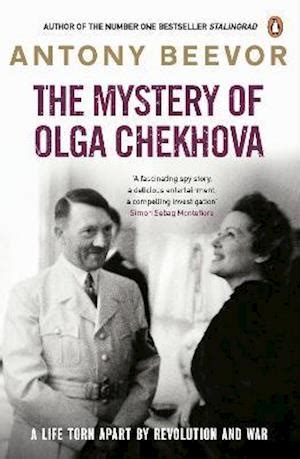




Kerry Hudson – Lowborn*
This is a vital read, as more and more families are forced into the kind of poverty that Hudson experienced as a child and a teenager. What hits me most is what bloody hard work it is being poor. The simplest things – eating nourishing food, keeping warm, keeping clean, staying safe – things that many of us take for granted, can only be achieved with constant, relentless battling against the system.
Yasmin Khan – The Great Partition: The Making of India and Pakistan
I’ve been fascinated by Partition since reading Paul Scott’s The Jewel in the Crown novels, and watching the dramatisation. I think the experience of living in Northern Nigeria during the build up to its Civil war, when Igbo people were murdered or driven out of the northern territories, gave those events particular resonance for me. I’ve previously read a collection of personal accounts of these events (Kavita Puri’s Partition Voices) but this is a detailed, solid history, with an emphasis on the human consequences of violence and displacement.
Rachel Lichtenstein – On Brick Lane
Portrait of a changing community through time, as different waves of immigration each reshape the area (Huguenot, Jewish, Bangladeshi) and its culture.
Wendy Lower – The Ravine: A Family, a Photograph, a Holocaust Massacre Revealed
When we are losing day by day the eye-witnesses to the Holocaust these scraps of photographic evidence become more vital, and Lower uses an image of one of the massacres of Jews in what is now Ukraine to identify killers, witnesses and victims. It’s a brutal read, as it should be.
Patrick Marnham – War in the Shadows: Resistance, Deception and Betrayal in Occupied France
A gripping account of the murkier aspects of SOE’s activities in Occupied France. It’s a very complicated story – it helps if one already knows some of the story of at least some of the protagonists – and sheds some light on who was doing the betraying…
Wendy Mitchell – What I Wish People Knew about Dementia
I read a lot about dementia when my mother-in-law was diagnosed. Some things were helpful, others less so. Wendy Mitchell’s first book didn’t so much give us practical help, as tremendous insight, from the person actually with the dementia, into what the condition means. Remarkably, she’s still writing, still sharing her experiences and this book may give us some useful ideas in supporting my father who has recently been diagnosed. He’s aware of his condition, as Mitchell is, and so can be involved to some extent in finding work-arounds to make life easier (mother-in-law’s confusion progressed so quickly that any solution we came up with one week was useless by the next).




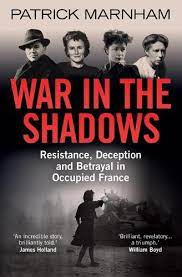

Caroline Moorehead – A House in the Mountains: The Women who Liberated Italy from Fascism*
I know very little about Italy’s war (see above for the same admission re Greece), but this was a fantastic, inspiring read. It focuses on four young women, in the mountains around Turin, who risked their lives daily during German occupation to move weapons and pass on messages, to fight, to take prisoners, to help liberate their country.
Philip Norman – Wild Thing: The Short, Spellbinding Life of Jimi Hendrix
Another biography of Hendrix, and dammit, the ending is the same as always. Having read so much about the man, there were anecdotes here about which I was sceptical, but also real new research and insights.
Tim Parks – Italian Life: A Modern Fable of Loyalty and Betrayal
Fascinating account of how HE in Italy works – the subtitle is very revealing. Having just completed a PhD in English HE, I am very thankful not to have had to go through the Italian system!
Samantha Power – The Education of an Idealist: A Memoir
An essential read for anyone interested in international politics, particularly in the politics of war and genocide from someone who, both as a journalist and as a US government official (including as Obama’s ambassador to the UN), saw at close quarters many of the events she discusses.
Tracy Thorn – Bedsit Disco Queen: How I Grew up and Tried to be a Pop Star
A delight. Funny and touching, beautifully written.
Dorothy Whipple – Random Commentary
I only recently discovered Whipple’s novels and that she had lived in Nottinghamshire, including a spell in the vicinity of Newstead Abbey, very close to my teenage home. These are her own edited extracts from her diaries between 1925 and 1945, touching on the minutiae of everyday life, the successes and frustrations of her writing career and the momentous world events just off stage.

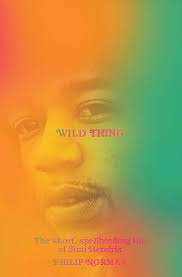



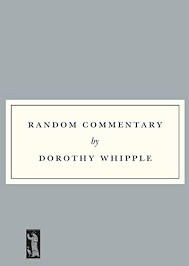
Reading has, over the last eight months, to some extent been an escape. But that doesn’t mean only reading easy stuff, or cosy stuff (I feel about ‘cosy’ books similarly to how I feel about Classic FM’s insistence that music should be ‘soothing’). The books I’ve read – the funny ones, the challenging ones, the heartbreaking ones, the gripping ones – have all taken me out of my immediate situation, out of the familiar home that is so strange without him in it. I’ve not only gained that respite, but also what George Eliot called the extension of sympathies – it’s easy to become very self-focused in a situation like mine, but books take me into other lives, other places, other histories. And I’m grateful for that.
2021 Reading: Full-time Report
Posted by cathannabel in Literature on December 11, 2021
This is a second half of two halves. In the first three months, my reading patterns were as normal, two or three books on the go at any one time, a mix of fiction and non-fiction, of high, low and middle brow, of different genres. On 9 October everything changed, for ever. My husband’s sudden death left me shell-shocked, devastated. I could not concentrate enough to read anything demanding – indeed, for a week or so I read nothing at all, a completely unprecedented state. When I felt able to read again I had to pick very carefully, and I started and discarded any number of books that I would normally relish. The variation in length and depth of the reviews which follow largely depends on whether I had completed and made some notes on the book before, or after.
As always, I aim to avoid spoilers but read on at your own risk. As always, my aim is to share my enthusiasms, so I’ve missed out one or two books about which I could only have said negative things. That doesn’t mean an unqualified recommendation for everything I read this year but I think it will be clear where I have major caveats…
James Baldwin – Going to Meet the Man/Tell Me How Long the Train’s Been Gone
I read the former, a collection of short stories, a very long time ago, so they seem only faintly familiar (and some of the themes and ideas obviously are in the novels too) but the joy in reading Baldwin’s prose, and dialogue, is something I will never tire of. ‘Sonny’s Blues’ is probably my favourite story – it taps into the church and musical environments which stimulated some of Baldwin’s most beautiful writing. But there is no beauty in the brilliant title story – just horror, plainly told. Tell Me… is classic Baldwin, exploring race and sexuality with candour and courage. It is, as he so often is, deeply moving.
Laurent Binet – HHhH
This was fascinating. I can’t imagine how one could make the story of the Anthropoid mission to assassinate Heydrich boring, even if one just recounted the facts. But what Binet does is to interrogate his own processes as a writer, to tell us a story and then cast doubt on it, to question his own motives in writing about Heydrich himself (is he becoming unhealthily fascinated with this man?). I find fiction about the Holocaust and Nazi atrocities inherently problematic – why tell fictionalised stories when the real stories still need telling, and re-telling – but this confronts the problem head on, acknowledges the invention as such, but in so doing gives us a powerful and vivid account of extraordinary, tragic events.
Brit Bennett – The Vanishing Half
Not so long back I read Nella Larson’s Passing, which was my first (fictional) encounter with the phenomenon of passing for white. This powerful novel brings that to life through the portrayal of two twins, both of whom could pass, and the decisions they both make. I had absorbed from Larson’s account the constant agony of those who decided to pass, the hyperconsciousness of everything they say and do, the fear of exposure. What this account gave me, in addition, was the way in which the person passing for white is forced to identify more strongly with their white neighbours, and avoid all contact with black people for fear that they, somehow, would sense the pretence and expose them. It’s a brilliant, complex picture of racial politics at the personal level, through two generations, and it will stay with me for a long time.
Susannah Clarke – Jonathan Strange and Mr Norrell/Piranesi
I’d seen the TV dramatization of JS & Mr N – which was very good – but the book was even better. And then Piranesi was on a whole other level. I don’t really know how to talk about the book before going back and re-reading it again. It is beautiful, mysterious and moving, without losing the dry humour that was so much a part of its predecessor. And I’m a sucker for labyrinths, so there’s that. Nods to Narnia, echoes of Le Guin. One of my books of the year, without a doubt. Just read it, OK?






Harlan Coben – Win
Jonathan Coe – Mr Wilder and Me
What a delight. For anyone who enjoys Coe’s writing, for anyone fascinated by cinema, or who’s ever seen a Billy Wilder movie. I knew a bit about Wilder’s life and have seen several of his films, including Fedora, which is at the heart of the narrative, and this casts a fascinating light on him and his sidekick Iz Diamond. A warm, humorous and touching novel.
Abigail Dean – Girl A
I was afraid this was going to be a harrowing account of abusive parenting and I guess it is but it is far more the account of the aftermath, of how one learns – tries to learn – to live again, to love oneself and other people, to trust, through the account of ‘Girl A’. Reminders of Room, though it’s structured very differently, going back to the awful past, and then to the aftermath of escape, and then to the present.
Len Deighton – Berlin Game
Having nearly run out of unread Le Carrés, I thought I’d revisit Deighton, by whom I’ve read a fair few over the years, but not this series. Thoroughly enjoyable, will read more.
Philip K Dick – The Man in the High Castle
I do love a bit of alt. history, especially WWII related. I’m surprised therefore that I never read this, during my sci-fi phase in my late teens/early 20s, but I think I only ever read Do Androids…. This was excellent – the depiction of the alt. US is thoroughly thought through and convincing and the ending turns everything inside out. I haven’t seen the TV adaptation, but I suspect it’s very different. Might give it a watch at some point.
Eva Dolan – After You Die
The fourth in the gripping, Peterborough set Zigic & Ferreira series, set in a Hate Crimes unit.




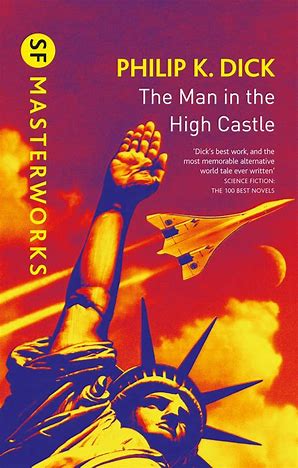
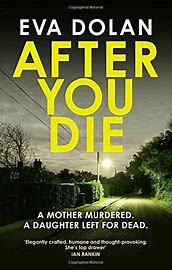
Avni Doshi – Burnt Sugar
A powerful, uncomfortable read. None of the characters are exactly likeable, but they are convincingly drawn and the narrative plays with, if not our sympathies, at least our willingness to be convinced by them.
Margaret Drabble – Pure Gold Baby
I hadn’t read any Drabble for about 30 years. That was a re-read of The Millstone, and I recall it vividly, sitting in our garden, and reading about the protagonist’s experience of having a sick child in hospital and being excluded from being by her side. I’d just been through that, the first part of that, but I’d been cared for by the hospital, and had been able to be with my son throughout (I also had a partner, unlike Rosamund). This new book shouts out to The Millstone – its central character is a single parent, with a child who has some learning/developmental disability, never clearly defined. At one point, she recalls the way in which she was expected to think about her child, as a ‘millstone’. She doesn’t, the child is her pure gold baby. We follow Jess and her daughter through the decades as the narrator, a close friend, shares not only what happened, but the debates and discussions that the group of friends had about mental health and women’s lives and love and parenthood. I loved it.
Helen Fields – Perfect Prey
I’ve been reading these in entirely the wrong order, but this is the second in the DI Callanach series.
Jo Furniss – The Last to Know
I’ve read the previous two of Furniss’ books, the post-apocalypse All the Little Children, the psychological thriller The Trailing Spouse, and now this one, which has a very strong Gothic flavour about it. The set up is familiar – a married couple return to his family home, and the wife feels immediately an atmosphere of threat which leads her to doubt everything she thinks she knows about her husband. It’s nicely, and not too predictably, worked out, and Furniss builds up the tension very effectively.
Amitav Ghosh – Flood of Fire
Final volume in the Ibis trilogy which was just fantastic, exhilarating, teeming with characters and landscapes and plot and historical detail, and sweeping the reader along with the narrative.
Lesley Glaister – Blasted Things
Glaister never lets me down. Most of her novels have a contemporary setting but this one pitches us right into the horrors of a WWI field hospital, and then the conventionality of a 1920s middle-class marriage. The brutality of the first and the claustrophobia of the second are skilfully conveyed, and the characters are vivid and multi-dimensional. At times I thought I could see where the plot was leading but I was invariably wrong. I’d like to re-read this to savour the writing, as my concentration is still shot and I have a tendency to race through books to get the plot.
Winston Graham – Ross Poldark/Demelza/Jeremy Poldark/Warleggan/Black Moon
Post-bereavement binge reading. I’d never read the Poldark series, but was content to revisit the plot familiar to me from the recent TV series, and to conjure up mental images of the Cornish coastline.






Elly Griffiths – The Midnight Hour
The latest Brighton mystery, with police and private detectives working together to solve a crime. As always, Griffiths’ novels are a delight.
Susan Hill – A Change of Circumstance
The latest Simon Serrailer novel.
Nick Hornby – Juliet Naked
I did feel ‘seen’, as they say, whilst reading this. Musical obsessions, the kind that make one track down an alternative mix or a rare bootleg live recording because it has an extra few notes from the object of one’s obsession, yes, thank you, we know about that. Very funny, and rather touching too.
Katherine Ryan Howard – 56 Days
Writing about the pandemic is tricky, given where we are now. I’ve seen TV programmes take various tacks – ignore, nod to it with the occasional shot of masked shoppers or whatever, or set something in the build up to ‘all this’ (see Series 2 of This Way Up). This one goes for it – the narrative starts in mid-pandemic but darts back to the days when we were talking about it but with no idea of what was to come – and really uses the ideas of lockdown and isolation to drive the plot forward. Very intriguing and tense and took me by surprise at a number of points.
Stephen King – Billy Summers
King, it would be pretty uncontroversial to say, is on a roll. His recent books are amongst his very best, and his embrace of the crime genre (even when he turns it to his own purposes) has helped to overcome the one problem with his fiction, the endings. This one is completely gripping throughout.
John Lanchester – The Wall
I had no idea what to expect of this, having downloaded it on the strength of Capital. We’re in a future Britain, changed irrevocably because of climate change (the past events which have created this new version of the world are only touched upon lightly, we have to accept this world as it is, with its rules and structures).
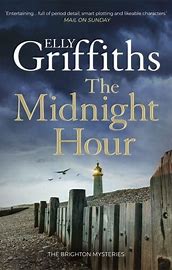





John le Carré – The Tailor of Panama
This was the book I was reading at the point when my life changed completely. I bear it no particular grudge, but would need to re-read before reviewing its place in the Le Carré oeuvre.
Laura Lippman – Dream Girl
Lippman possibly channelling King here (I won’t say which King, because that might be slightly spoilery). As always, superbly written.
Megha Majumdar – A Burning
This one is a heartbreaker. Majumdar gives the reader hope and then snatches it away, over and over. Beautifully done, and the three voices that we hear are clear and convincing, however flawed their characters and perspectives.
Jennifer Makumbi – Manchester Happened
A fascinating collection of short stories about migration, specifically between Uganda and Manchester, that illuminate many different perspectives. I was particularly taken with the first story, set in the early 50s, as I’ve been doing a PhD on a novel written at that time, and set in Manchester (Passing Time – I may have mentioned it once or twice)
Klaus Mann – Mephisto
This isn’t a fun read – it’s bitter, cynical, despairing. How could it be other, written as it was by an exile from Nazi Germany, in 1936? It is based very much on real people (Goering, Goebbels and their wives, future Hollywood star Elisabeth Bergner, and many others), and got Mann into difficulties when the model for central character Hendrik Hofgens objected vigorously to Mann’s portrayal of him as someone who made a pact with the devil, in exchange for fame and success…
Denise Mina – The End of the Wasp Season
Mina’s crime novels are always unsettling and this is no exception. She wrongfooted me several times during this narrative, but not just for the sake of it.

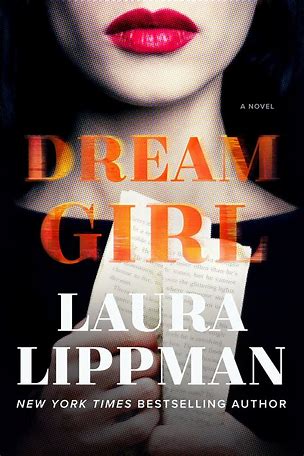




Erich Maria Remarque – Arch of Triumph
I read a lot of Remarque during my teens (starting in the obvious place with All Quiet, but particularly enjoying his novels set between the wars, Three Comrades, A Time to Love and a Time to Die, A Night in Lisbon. This one powerfully conveys the life of people who’ve ended up in Paris in those precarious days, without documents. Coincidentally, it reminded me that I had the remnants of a bottle of Calvados at the back of a pantry shelf. I no longer have those remnants.
C J Sansom – Heartstone/Lamentation
Two Shardlake historical detective novels. I enjoy these, although sometimes the style grates (too much ‘he said sadly/she said quietly/he said grimly’ and a bit too much of people telling each other the history)
Elif Shafak – 10 Minutes, 38 Seconds in this Strange World
A strange one, this. The narratives of our protagonist, who is dead when we first meet her, but whose memories take 10 minutes, 38 seconds to fade, and she shares them with us, as she passes from one world to another, and of her loyal friends, all of them people who for one reason or another are on the margins, are powerful and moving. The tone changes in the final act, becomes almost comedic, which is strange.
Ali Smith – How to be Both
It took me a while to get into the rhythm of this, with the shifting tenses and then the shifting timeframes and perspectives, but as with all of Ali Smith’s work, it’s worth the effort, and will be worth re-reading.
Zadie Smith – Swingtime
I still haven’t quite come to terms with Zadie Smith, but I enjoyed this one more than NW. There was something troubling about the portrayal of Tracey and her mum though, a hint of snobbery?
Cath Staincliffe – Running out of Road
Not for the first time, Staincliffe made me hold my breath for long stretches of narrative.
Stuart Turton – The Devil and the Dark Water
A vividly written historical thriller, set on the high seas, with a supernatural (is it or isn’t it?) thread. Very vividly written






Nicola Upson – Sorry for the Dead/An Expert in Murder/Angel with Two Faces/Two for Sorrow/Fear in the Sunlight/The Death of Lucy Kyte
Post-bereavement binge reading of a series in which the real-life crime writer/dramatist Josephine Tey is the protagonist in various fictional murders.
Sylvia Townsend Warner – Lolly Willowes
Dorothy Whipple – High Wages
I loved this, my second Whipple. A resourceful young woman as our hero, and the crushing weight of social conventions at the time (written in 1930).
Chris Whitaker – We Begin at the End
An absolutely gripping and moving crime thriller, with a compelling young female hero.
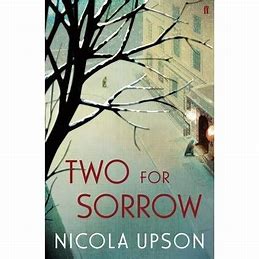


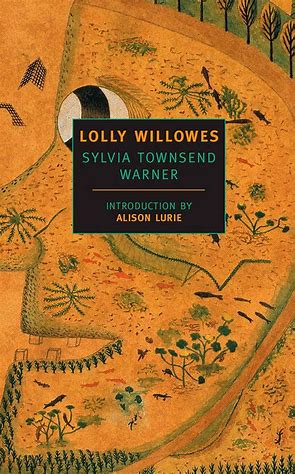


Non-Fiction
Enjeela Ahmadi-Miller – The Broken Circle: A Memoir of Escaping Afghanistan
Carole Angier – Speak Silence: In Search of W G Sebald
The first biography of W G Sebald, hampered somewhat by its author not having the cooperation of Sebald’s wife or daughter. This does mean that a lot of it is very speculative and dependent on sources whose reliability we might reasonably question. There’s lots of new information here, however, and some useful insights.
James Baldwin – The Last Interview
Anthony Burgess – Obscenity & the Arts
Ciaran Carson – Belfast Confetti
I discovered this poet accidentally through my PhD researches, which brought up a remarkable poem, ‘Turn Around’, about maps and labyrinths.
Kate Clanchy – Some Kids I Taught and What they Taught Me
Oh boy, where to start. I read this having already seen some of the negative comments on Twitter, but also having read many of the poems that Clanchy has posted from the young poets she’s worked with, and found them very striking, and moving. She is trying, I think, in Some Kids, to let us see the diversity of these young people in all its glory, but there’s something very off-key about the way she describes them, and ultimately it was a very uncomfortable read.

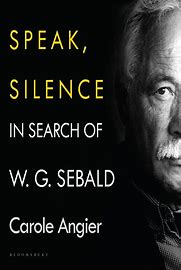


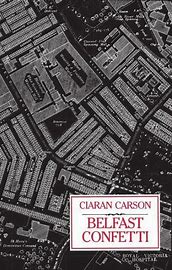

Teju Cole – Known & Strange Things: Essays
Dan Davies – In Plain Sight: The Life and Lies of Jimmy Savile
If I say that this is the one book I’ve read so far this year that made me feel physically sick, it is no reflection on the author or the writing. It’s a response to his subject. I felt a sense of hopelessness in reading it, at the opportunities to stop him that were missed, through bad luck or deliberate blindness, or corruption. It’s a shocking read, rightly so.
Grant Graff – The Only Plane in the Sky: An Oral History of 9/11
An extraordinary account of 9/11, built from the words of those who experienced it, directly or vicariously as they waited to hear from people they loved, including the transcripts of phone calls from the planes and other emergency calls. It’s fascinating, often heartbreaking, and sheds new light on an event that we might all feel we know, because those images are so ubiquitous and burned into our memories.
Naoki Higashida – The Reason I Jump
Leo Marks – Between Silk and Cyanide: A Codemaker’s War, 1941-1945
The memoir of a man who was key to the code-setting and code-breaking activities during the war, and who knew most of the SOE operatives who were sent into France. It’s self-deprecating, with a wry humour, but Marks speaks movingly and powerfully of the tragedy of what happened to those young men and women.
Ben MacIntyre – Operation Mincemeat: The True Spy Story that Changed the Course of World War II
An account of one of the more improbable seeming exploits of British intelligence during the war – a corpse, bearing apparent secrets that were meant to deceive the enemy.






Caitlin Moran – More than a Woman
Ridiculously funny, but also very moving when Moran talks about her daughter’s eating disorder. It doesn’t always resonate with me – for starters, I’m much further ahead on that journey than Moran or probably much of her intended readership – but when it does, it really does.
Mary Oliver – American Primitive
I chose ‘In Blackwater Woods’ for my husband’s funeral ceremony. ‘To live in this world / you must be able / to do three things: / to love what is mortal; / to hold it / against your bones knowing / your own life depends on it; / and, when the time comes to let it go, / to let it go’.
Kavita Puri – Partition Voices: Untold British Stories
First hand accounts from the Partition of India and Pakistan. Harrowing and haunting.
Philippe Sands – The Ratline: Love, Lies and Justice on the Trail of a Nazi Fugitive
Reads like a thriller, the account of a senior Nazi who escaped arrest after the war, but it never loses sight of what Otto Wachter was responsible for, and Sands draws out the connections between Wachter and the fate of his own family.
Kate Vigurs – Mission France: The True History of the Women of SOE
SOE again. I’ve been fascinated by these stories since I was a teenager, watching old black & white films – Odette, and Carve her Name with Pride. This is a much less romanticised account than those films gave, and doesn’t shy away from the extent to which naivety or over-confidence led to some of the tragedies which befell the agents.
Isobel Wilkerson – The Warmth of Other Sons: The Epic Story of America’s Great Migration
I thought I knew nothing about the Great Migration, but reading this gripping account, I realised that everything I’ve read about the African-American experience in the 20th century, fictional and non-fictional, has had this at the core. Fascinating.
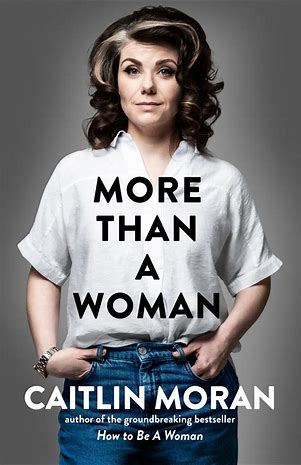





Reading has always been my solace as well as my inspiration. It will be again, even if for now I’m reluctant to tackle anything too challenging, or anything which might come too close to my own grief and loss.
My two novels of the year are Jon McGregor’s Lean, Fall, Stand, and Susannah Clarke’s Piranesi. In non-fiction, I’ll pick Rachel Clarke’s Breathtaking, an account of the early months of the pandemic, and Rebecca Clifford’s Survivors, about child survivors of the Holocaust. (Both are reviewed in my half-time report.)
Thank you to all of the writers whose work has entertained, comforted, amazed, intrigued and in whatever other ways enriched me in 2021.
2021 Reading: Half-time report
Posted by cathannabel in Literature on June 30, 2021
I do appear to have read quite a lot of books in the first half of 2021… And this isn’t quite everything – I’ve left out one or two re-reads, one or two very academic books that I read solely for purposes of my thesis, and one or two that were just such a waste of time to read that I couldn’t be bothered to waste further time saying how rubbish they were. Not that everything I list here was marvellous, but there is a difference, I would say, between noting my issues with, e.g., Ian McEwan’s Solar, and slating a random thriller that I got for 99p off Amazon. I’m reasonably discriminating in my acquisitions, so it’s rare that there are more than a couple of utter duds. And ultimately, the reason I write about what I read is to share the good stuff, to infect other people with my own enthusiasms, and big up the writers who’ve given me pleasure and enlightenment.
I’ve split fiction and non-fiction. Fiction is in strictly alphabetical author order, not grouped by genre. Non-fiction is grouped, very roughly, by topic. I’ve included links to reviews where they’re not too spoilery but as always, caveat lector.
FICTION
Eric Ambler – The Mask of Dimitrios. A cracking thriller, set in the tense period before the outbreak of WWII, and pitting a writer of detective novels against an international network of crime, from Istanbul to Paris. Ambler was hugely influential, particularly on Graham Greene, and his perspective is politically informed and leftist.
James Baldwin – Another Country/Just Above my Head. I read the former as a teenager, and it is just as bleakly powerful half a century later. The latter is new to me, and I gather is not regarded as one of his best but I loved it, loving the rhythms of the prose and the dialogue, the elegiac tone, the immersion in the church and in music. I’ve been absorbed in Baldwin’s life and work over the last couple of years, his essays and novels, an excellent biography (see below), and Raoul Peck’s remarkable film, I Am Not Your Negro. Plus he cropped up in a Radio 4 programme hosted by Clarke Peters, about the 1987 performance of his play, The Amen Corner. Everything I read, hear, watch makes me admire and love Baldwin more.
Belinda Bauer – Exit. I’ve been a fan of Bauer’s sharp, off-beat crime novels for several years now, and this is terrific. It’s very funny, in a dark way, and it keeps on surprising the reader without resorting to the kind of twists for twists’ sake that too many thriller writers employ in lieu of convincing characterisation and intelligent plotting…
Mark Billingham – Cry Baby – another excellent crime writer. This is a Tom Thorne novel, but a prequel, going back to the time before the start of the series (Sleepyhead). Thorne is a not a rookie here though, he’s already got ten years (and associated traumas) under his belt, and this case is a brute.
William Boyd – Ordinary Thunderstorms. One never knows what to expect with Boyd. This starts off in seemingly very familiar territory – in fact, we’re in The 39 Steps territory. From there on we go all over the shop really, big pharma conspiracies, London’s marginalised communities of illegal migrants, sex workers and the homeless, hit-men and a good man on the run. It doesn’t entirely hold together, but it’s a great read and – being Boyd – beautifully written.
Geraldine Brooks – Year of Wonders. Historical fiction this time, and the setting is a village in Derbyshire, in the year of the Great Plague. It’s based (at least in the set-up) on the true story of Eyam, familiar to anyone who grew up in Notts/Derbyshire/South Yorkshire, the story of the vicar who persuaded his parishioners to quarantine themselves after a case of plague in the village. This is dramatic and remarkable enough but Brooks then takes the plot in even more dramatic and unexpected directions… Oddly, one of the reviews seemed to be saying that the Eyam story was itself melodramatic and improbable. Clearly didn’t go to school in our neck of the woods…
Anthony Burgess – Nothing Like the Sun. Fascinating to read this so soon after reading Orlando (see below), as it connects so powerfully with the Elizabethan section of the latter. The language is exuberantly, extravagantly Shakespearian, but it subtly evolves over the life of the writer, who as a boy plays with language that goes beyond his understanding, but learns its power, and the limits of that power.
James Lee Burke – A Private Cathedral. I’ve really enjoyed the Dave Robicheaux series but this one was odd. It all got a bit supernatural, and whilst there’s always been that undercurrent, with Robicheaux having dream-like visions of the past, this takes it to another level and I’m not sure I’m convinced…
Jessie Burton – The Miniaturist. Another one that didn’t quite convince me. The historical setting and detail were great, but, as with the Burke, there was a supernatural element that didn’t quite work (for me) and the way the feminist/gay/racial strands of the plot were handled felt anachronistic and a bit artificial.
Michel Butor – Passing Time. Of course I’ve read this book this year, as I have every year for the last 15. I’m including it this time because I’ve unusually spent a lot of time immersed in the English translation, which I’ve been helping to revise for a new edition, out now…
Peter Carey – True History of the Kelly Gang. I’ve read most of Carey’s novels, and I love them. The language of this one took a bit of getting into (though no more than Illywhacker, say) because it is all in Ned Kelly’s voice, but once I was comfortable with that, it was a riot. It’s ‘true history’ but one should note that there is no definite or indefinite article in the title, which alerts us that Carey, as always, tells stories that are ‘playful, shape-changing’. The story is remarkable enough, as is Ned himself, who as we are constantly reminded in the narrative, is just a boy, and Carey makes it vivid and viscerally immediate.
M R Carey – The Girl with All the Gifts. Excellent – whenever you think the ‘zombie’ idea has been done, as it were, to death, there’s a new take on it that creates new possibilities not just for drama but for emotional heft.
Candice Carty-Williams – Queenie. Funny, perceptive, heartbreaking. My daughter is Queenie’s age, and that undoubtedly made my emotional response more intense – I wanted to hold that girl and keep her from harm, keep her from harming herself.
Jane Casey – The Killing Kind. A stand-alone thriller by one of my favourite contemporary crime writers, it had me gripped from the start, and kind of scared too, that prickling feeling at the back of the neck, that sense of unease was pervasive, and not entirely resolved at the end of the novel…
Harlan Coben – The Boy from the Woods/The Stranger. Coben’s thrillers are reliably slick page turners, even if one doesn’t look to them for in-depth characterisation (and it does sometimes grate that all of his protagonists are both rich AND gorgeous…). I do like to have one or two on my Kindle to turn to between more demanding reads.
Jonathan Coe – The Rain before it Falls. Beautiful and moving. I’ve read several of Coe’s including his trilogy (The Rotters’ Club/The Closed Circle/Middle England) and he writes with warmth, understanding and compassion about even the less sympathetic of his characters, as well as incisively and with humour about the world we live in. Here we are taken back into the past life of an elderly woman through the series of cassette tapes she leaves for the benefit of an elusive legatee, a story told through a series of photographs. This is clever stuff, but it’s never merely clever. It is, as the Guardian reviewer said, ‘a brief, sad, often very moving story of mothers and daughters, of pain passed on through generations, and of deep and abiding loneliness’.
Suzanne Collins – The Ballad of Songbirds and Snakes. I knew this was linked to the Hunger Games trilogy, but hadn’t twigged that it was a prequel so was mightily confused for a while… Once I’d grasped that it was the origin story of Coriolanus Snow, that obviously coloured the way I understood the protagonist, but not so much that it destroyed any suspense, and not so much that one didn’t occasionally sympathise with him (to a point). The book wasn’t necessary in any way, but enjoyable nonetheless.
Jeanine Cummins – American Dirt. This attracted some controversy, which I don’t think was entirely fair. OK, Cummins relied on research rather than shared experience or background to create the world of the refugees, but isn’t that what novelists do? Should they only write what they know? And Cummins is very aware of this issue, and it is clear that her migrants are not presented as being representative, that this is one story, albeit one that touches on a lot of other stories. I found it a totally compelling read, had to keep reminding myself to breathe…
Tsitsi Dangarembga – Nervous Conditions/The Book of Not/This Mournable Body. I read these in the wrong order by mistake (1, 3, 2…)! Nervous Conditions was the first novel by a Zimbabwean woman to be published in English, and This Mournable Body was shortlisted for the Booker. The novels explore the intersections between race, colonialism and gender in a way that’s engaging and moving.
A A Dhand – Streets of Darkness. Bradford set crime novel, the first in a series. I loved the setting, but found the plot a tad melodramatic, and the over-use of ‘dark secrets from the past’ a bit wearisome. Will give it another go, this had a lot to recommend it even with those caveats.
Charles Dickens – Mugby Junction. I thought I’d read all Dickens but I’d missed this short story, part of a collection, featuring a few by Dickens and then stories by other contributors. I haven’t yet tracked down an edition with all of the stories, so read this primarily for Mugby Junction itself. The opening sequence, a man arriving at a railway station late at night, got me hooked, though the plot subsequently veered towards Dickens’ more sentimental side.
Louise Doughty – Black Water. The setting is Indonesia, in 1965 and 1998, and it is a tense political thriller, rooted in character and tackling head-on the complex moral dilemmas of those times. Doughty may be best known for Apple Tree Yard, which is excellent, but her work is incredibly varied – I would always put Fires in the Dark, a harrowing and important novel that addresses the Romani Holocaust, as my top Doughty but I also loved the recent Platform 7 which was different again.
Sebastian Faulks – Engleby. We’re not left in any doubt that our eponymous protagonist is odd, an outsider, but as we see things through his eyes (until late in the novel), we don’t entirely realise who he is and what he is capable of. Our sympathies gradually detach from him as we see him more clearly, and Faulks lets us hear what others say about Engleby through diary entries etc. I doubt that any reader would be shocked and amazed by the major plot development, of which I will say nothing, however, in case I am mistaken.
Helen Fields – Perfect Silence. Book 4 in her DI Luc Callanach series, tense and well plotted.
Nicci French – Frieda Klein series. I binged these over Christmas/New Year. Eight books, starting with Blue Monday and ending with Day of the Dead. Proper edge of the seat stuff, though I had some plot issues, about which I can say no more without spoilers.
Tana French – The Searcher. A stand-alone from the author of the superb Dublin Murders series. Rural Irish noir with an ex-Chicago cop as protagonist, and a host of references to the Western genre. Very enjoyable, if not quite French’s best.
Amitav Ghosh – Sea of Poppies/River of Smoke. Books 1 and 2 of the Ibis Trilogy, and book 3 will feature in my end of year list, as I am looking forward to it enormously. Ghosh’s canvas here is vast – the setting is early 19th century, and the story ranges across India, Mauritius, Canton and Hong Kong, as a cast of diverse and fascinating individuals are drawn together directly or indirectly by the opium trade, and the ship, the Ibis, on which they all find themselves at some point. There is a Babel of different languages, not just the native languages of the Bihari, Bengali, Parsi, Cantonese, English and Americans, but the nautical languages, the ‘pidgin’ languages developed to enable trade between these diverse peoples. It’s glorious and exhilarating.
Isabelle Grey – Out of Sight. This is a stand-alone novel from the author of the DI Grace Fisher series, and it was actually her fictional debut. It’s a psychological thriller, which builds the emotional tension with great skill.
Elly Griffiths – The Night Hawks. The latest Ruth Galloway and another highly enjoyable read. Griffiths is great at creating atmosphere and tension, and her characters (both the familiar ones, who are old friends now, and the new characters) are fully real.
Sophie Hannah – Haven’t They Grown. Psychological thriller that presents us right at the start with something impossible, even crazy, that the protagonist – and the reader – have to try to figure out. It’s very twisty, and I couldn’t see how on earth Hannah was going to resolve it all, but she does, and it’s all hugely enjoyable.
Jane Harper – The Survivors. Harper’s four crime novels are all exceptionally strong on landscape and location. Here the setting is a coastal community in Tasmania, far from the scorching heat of The Lost Man, where storms at sea are part of the local history whilst resonating in the present. There’s real tragedy here, coming from human frailty and fear rather than from evil.
Sarah Hilary – Fragile. A stand-alone thriller from the author of the Marnie Rome series. This is not just about secrets and lies (without secrets and lies there would be very little fiction of any genre, after all), it’s about responsibility and guilt and how even when everything is known, there is no absolute truth, and no complete absolution. The sense of place is potent, and the characters subtly drawn, with compassion and understanding.
Joe Hill – NOS4A2. Son of King. And this is very King, which is not a criticism, because I love King, though on the strength of this I would say that ‘son of’ shares not only the best qualities but also some of the flaws of his father. No matter, this was a cracking read, with real terror, and an excellent protagonist, a teenage girl whose life becomes entangled with evil.
Dorothy Hughes – In A Lonely Place. This is noir, very noir. (There’s a 1950 Nicholas Ray film based on the book, which, however, changes the central premise.) It’s brilliant, and I’m baffled as to why Hughes is not better known. (Well, perhaps not entirely baffled, but it’s a grave injustice in any case.)
Kazuo Ishiguro – The Buried Giant. Ishiguro wrongfoots his readers once again, with this venture into the historical/mythical Dark Ages, with giants and dragons and Arthurian knights, through which he explores old age, memory, loss, love and war, and a huge ethical question about forgetting and healing.
Peter James – Dead Simple. The first in the DI Roy Grace series, recently televised with John Simm in the lead role. A great plot, though I was less taken with DI Grace himself – I will persevere and hope to warm to him a little more (I might watch the TV one – if John Simm doesn’t win me over it’s probably a lost cause).
Stephen King – Later. The latest in his Hard Case Crime series. There is crime, but as King reminds us from time to time, this is horror. Sometimes King loses his grasp of plot and things get a bit baggy and muddled but not here – it’s taut and tense and gripping. As the Washington Post reviewer said, ‘The next time you see a dog look twice at a bench, or watch a baby cry for no obvious reason, this novel will be right there behind you, its hand on your shoulder, its whisper so close to your ear you might cringe a little, and then smile, because you’re in the hands of a master storyteller’.
John le Carré – A Most Wanted Man. Only a few more unread le Carrés, sadly. Hari Kunzru in The Guardian called it ‘one of the most sophisticated fictional responses to the war on terror yet published, a humane novel which takes on the world’s latest binarism and exposes troubling shades of grey’.
Jennifer Nansubuga Makumbi – The First Woman. A coming-of-age story from Idi Amin’s Uganda, which moves back in time to explore the lives of earlier generations of women, with diversions into feminist origin myths, as the protagonist tries to navigate a complicated and feud-ridden family life. There’s lots of humour and warmth here, and it is ultimately celebratory, with a final scene that gave me goose-bumps and a huge lump in my throat.
Val McDermid – Killing the Shadows/The Grave Tattoo/Still Life. Three very different McDermids. Killing the Shadows is a highly ingenious serial killer story, with a twist, that the killer is targeting crime writers. It’s done very cleverly, and with self-aware dark humour. The Grave Tattoo gives us a crime that connects with 18th century history and literature. These two are both stand-alones, and in neither case is the protagonist a detective. The third, Still Life, published in 2020, is book 6 in the excellent Karen Pirie series
Ian McEwan – Solar. Hmm. Sometimes acerbically funny, sometimes merely farcical. None of the characters was particularly convincing, and I found it wearying to see yet again the trope of a male protagonist who is made as unappealing (physically and morally) as possible and yet still pulls attractive, younger women. Yaawwwnn. I also was a bit gobsmacked by the reviewer who claimed that McEwan had ‘swotted up to PhD level in Physics’ for the purposes of this book. Even if he had started off with a strong scientific background, I cannot see how he could have done this on any plausible time frame. So, it had its moments, but overall it was too annoying to be enjoyable.
Jon McGregor – Lean Fall Stand. Fiction book of the year (so far, but it will take quite something to dislodge it). McGregor is possibly my favourite contemporary novelist – each of his books has had quite an extraordinary impact on me, subtle and delicate and brutal and compelling. Reviewers tended to all praise the first section but then to favour one or other of the other two sections. I can see why – I felt a sense of regret as each section ended and I realised that the perspective, and the style, had shifted, but then was quickly won over by the brilliance and beauty of the writing. I read it, as I read most things, in too much of a rush and immediately started again at the beginning, taking it slow, savouring it.
Dervla McTiernan – The Scholar. Sequel to The Ruin and featuring the same detective, Cormac O’Reilly. It’s even better than its predecessor, I would say, and I very much enjoyed The Ruin – well-drawn characters, a very clever and thoroughly worked out plot with a lot of tension.
Maaza Mengiste – The Shadow King. Set in Ethiopia in 1935, during the Italian invasion. It’s a very intense read, violent and dark, absolutely fascinating, with a focus on the women soldiers who fought to defend their homeland against the invaders.
Denise Mina – The Less Dead is a crime novel which wants to challenge the way we tell the stories of the victims of crime, particularly those whose chaotic lives make them both more vulnerable to violence and more likely to be blamed for their own demise, marginalised in both life and death. The story in itself was powerful and of course it chimed with one of last year’s reads, Hallie Rubenhold’s The Five, and with The Thirteen too…
Sarah Moss – Summerwater. I love Sarah Moss’s books and this one will repay an early re-read to appreciate its subtleties (see my remarks re Jon McGregor). There is, throughout, a sense of unease, something not quite right, that the occupants of these loch-side cabins are not as they appear through the eyes of their neighbours or even to their closest family.
Thomas Mullen – Midnight Atlanta. The third in a superb series along with Darktown and The Lightning Men, set in Atlanta in the 1950s with racial politics absolutely at the heart of the action.
Andrew O’Hagan – Mayflies. The invulnerability of youth, friendship, aging and mortality. The first half was gloriously funny, the second broke me.
Caryl Phillips – Crossing the River. Fragments of the history of the African diaspora, linked by a (not literal) familial connection. We start on a West African shore as a man acknowledges his guilt and grief over his children, sold into slavery. We join those lost children in Liberia, as a freed slave endeavours to take the gospel and ‘civilisation’ back to Africa, in Colorado as a slave, freed after the Civil War, dreams of finding her own lost child, and some kind of real freedom, and in Yorkshire where a black GI and a local woman recognise each other’s lostness. And we have the journal of the man to whom those lost children were sold. The chronologies do not make sense, historical plausibility is not the priority here. They are powerful narratives, different voices persuasively rendered, moments that stay with you.
John Preston – The Dig. Lightly fictionalised version of the Sutton Hoo dig. It’s the people that interest Preston, rather than their discoveries, and not those who are most prominent in the official narrative but those who were overshadowed, due to their own natural reticence or the prejudices of others. A lovely, poignant read.
Ian Rankin – A Song for the Dark Times. The latest Rebus. Rebus is still splendidly Rebus and has not allowed his retirement to in any way constrain his mission to annoy the hell out of the establishment.
C J Sansom – Tombland. I was slightly disappointed with the last one I read in the Shardlake series due to some clunky writing but thoroughly enjoyed this, partly because the setting was very different – we’re in Norfolk, at the time of Kett’s Rebellion, and it’s a gripping story (there’s a murder mystery here, but the context is just as compelling as the crime).
Francis Spufford – Light Perpetual. A wonderful book. The opening is a tour de force, and that force propels us through the lives of five children, lives that might not have been. The Guardian calls it ‘both a requiem and a giving of life’. And it’s profoundly musical too, whether in its subject matter or in the way that these five lives interweave in harmony or dissonance.
Elizabeth Strout – Olive Again. Olive Kitteridge is, I think, Strout’s finest creation. She’s not a comfortable person, she’s abrasive and clumsy. But she’s utterly convincing, and fascinating. As is Strout’s usual approach, she gives us a series of short stories, with recurring characters, so that we see some of the same events from different perspectives. Olive Again is unflinching in its portrayal of ageing, its indignities and regrets, but it is somehow hopeful, that we can still change, still love.
Graham Swift – Here We Are. This is kind of magical. The Guardian said: ‘This is a beautiful, gentle, intricate novella, the kind of book that stays with you despite not appearing to do anything particularly new or special. In fact, perhaps that’s what makes it so very good: Here We Are smuggles within the pages of a seemingly commonplace tale depths of emotion and narrative complexity that take the breath away.’
Antal Szerb – Journey by Moonlight. This is the great Hungarian novel, and it’s quite something. Written in 1937, its author was murdered by the Nazis during the last months of the war. The book is hard to describe – it reminded me at times of Sebald and at others of Ishiguro. This fascinating article describes it as ‘a brief reprieve from the logic according to which happiness and sadness are opposed to one another’. What that quote doesn’t convey perhaps is that it’s often very funny.
Sylvia Townsend Warner – The Corner that Held Them. Warner is a most intriguing writer. About this novel, published in 1948 and set in a convent at the time of the Black Death (I know…), she apparently said, ‘I am still inclined to call it People Growing Old. It has no conversations and no pictures, it has no plot, and the characters are innumerable and insignificant’. This curiously compelling, and often drily humorous novel is about history as ‘a tangle of events’; about a community, rather than about the individuals who comprise that community.
Dorothy Whipple – Greenbanks. I’d not even heard of Whipple until the last year or so (I do apologise to her) but during the plague times I think many people turned back to some of the literature of the interwar period (this is from 1932), and Whipple’s name just kept coming up in recommendations from friends and acquaintances. So, I have now Whippled and I will assuredly do so again, because Greenbanks was lovely. And by that I don’t mean it was all cosy comfort, far from it. It leaves the younger of the two main protagonists with much about her life and future happiness unresolved, and its male characters are portrayed incisively, their ‘pretensions and presumptions’ exposed and punctured. The writing is absolutely delicious.
Christa Wolf – Cassandra. Published in 1983, this is a retelling of the story of the Trojan War from the perspective of the woman cursed to prophesy and not be believed. There are many resonances with life in the GDR, and the book was censored when first published. It’s also got a strong theme of the marginalisation of women’s lives, the lack of choice and agency (even for the daughter of a King).
Virginia Woolf – Orlando. I’d been meaning to read this for years, having tried and failed to read other Woolf novels. This was the one to break that pattern, it’s quite extraordinary, a wild ride through the centuries, through English literary history, with a male protagonist who quite suddenly becomes a female protagonist, albeit one who presents as male when it suits her purposes, and who takes male and female lovers. Glorious.
Peter Jones – Little Piece of Harm. I read poetry a lot less often than I intend to. What tempts me to go there is usually a new publication from Longbarrow Press, and this one was a gem. It’s ‘a narrative sequence that focuses on 24 hours in the life of a city that has been shut down in the aftermath of a shooting. As this act of violence ramifies outwards, the sequence explores the geographical reach of Sheffield – its urban settings and its rural landmarks – and eavesdrops on the city’s conversations.’
Non-Fiction
David Leeming – James Baldwin. A wonderful biography, from someone who knew Baldwin well. I was immersed in this, so much so that I felt quite overwhelmed at his death, as if he was someone I’d known. This isn’t a hagiography – Baldwin was a complicated and often difficult man, who fell out with a lot of people over the years, a man who never worked out how to love himself, who saw himself as ugly, who never found the true love that he wanted. But he’s a towering figure, his vision and passion are so powerfully articulated in his fiction and essays as well as in interviews. Charisma and intellect in such abundance.
W E B Dubois – The Souls of Black Folk. Dubois’ work obviously influenced Baldwin, as it did all of the writers who’ve talked about race in the twentieth century, and into our own. Dubois’ style seems a bit florid (it is of its time, 1903) but nonetheless it is clear and lucid and passionate. He talks about the veil between the black and white worlds, he talks about how it feels to ‘be a problem’. He says it so well that it is no wonder that by the time Baldwin is saying similar things, in a very different style, 60-70 years later, he is angry and weary that they still need saying. They still do.
David Baddiel – Jews Don’t Count. Baddiel follows his powerful documentary on Holocaust denial with this passionate, funny, angry account of how Jews are somehow omitted from consideration so often when racial prejudice is under discussion. It’s quite shattering – so many things that I had seen out of the corner of my eye, in a way, but not confronted, in my own thinking about race and in the way it is written and spoken about. Groundbreaking.
Alexandra Wilson – In Black and White Wilson came to attention with a piece in the Guardian, recounting a day in which she, a barrister, on three separate occasions had to persuade court officials that she was not, in fact, the defendant… This sets those incidents in the context of her career in the law, and of the way in which race and class affect the way in which people fare in the legal system.
Susi Bechhofer – Rosa’s Child. The account of a child of the Kindertransport, who came to England with her sister, was fostered with a couple who tried to erase all memory and knowledge of their previous life, and who only discovered the fate of her mother in middle age. W G Sebald used (without her permission) many elements of her story in Austerlitz.
Rachel Clifford – Survivors. Clifford’s study of child survivors of the Holocaust (specifically, those who were in camps, or in hiding, or who otherwise lived out the war in Europe) is fascinating, particularly in its exploration of how understanding of trauma developed over the post-war period.
Miriam Darvas – Farewell to Prague. Somewhat breathlessly written (perhaps for a YA readership), it’s nonetheless a gripping and powerful story.
Hadley Freeman – The House of Glass. A meticulously researched and emotionally powerful family history, driven by the need to understand her grandmother, and to know what happened to the wider family, who survived the Holocaust and how, who didn’t and why.
Saul Friedlander – The Years of Extermination. Volume 2 of Friedlander’s history of Nazi Germany and the Jews. What can one say – it is exhaustive and relentless, and as always one is struck by the sheer mad obsession of that hatred, that led the Nazis to continue searching for, rounding up and transporting Jewish men, women and children to their deaths, even as the Allies were closing in on Berlin.
Lillian Furst – Random Destinations. A study of various fictionalised accounts of the lives of those who escaped the Holocaust, and how these narratives could face some of the darker aspects of those lives, marked by trauma, struggling with their own sense of identity, with their Jewishness, with their exile, aspects that have sometimes been neglected due to the focus on the successes of the more prominent survivors.
Anna Hajkova – The Last Ghetto. A detailed and fascinating study of Theresienstadt, the town that became a ghetto prison, and then a Potemkin village to delude the Red Cross into believing that the occupants were well looked after, a place where many died of disease and from which many more were deported to Auschwitz. Hajkova talks about the way in which the ghetto was organised, the hierarchies and power balances between the inhabitants, putting the brief episode with the Red Cross into context rather than making it the centre of the narrative.
Michael Rosen – The Missing. Like Freeman, Rosen set out to find out what happened to the ‘missing’ members of his family. This account is aimed at children/young adults, but does not pull its punches. Rosen incorporates poems and source documents to help readers understand both the facts and their emotional weight. It’s a moving read for adults who feel they know this stuff already, too.
Anne Applebaum – The Twilight of Democracy. I read a while ago Applebaum’s Iron Curtain, which was excellent. This one is different, because it is intensely personal, as well as being rigorously analytical. It’s the account of how, at the start of the millennium, she and her friends (in the US, the UK, in Poland and elsewhere in Europe) were in broad agreement about the future of democracy and how, in the years since, many of those friends have moved so far to the nationalist right that she and they no longer speak.
Adam Hothschild – King Leopold’s Ghost. The horrific story of the exploitation of the Congo Free State (which included the whole of what is now DRC) by King Leopold II of Belgium between 1885 and 1908. Leopold exploited the land and its natural resources, but most appallingly its people, who were treated as entirely expendable, and who were, in vast numbers, mutilated, tortured and killed. Those who want to defend colonialism will argue that this is an extreme case, and it is, but the mentality behind it – greed, combined with the deep rooted belief that the African people were inferior beings – can be seen in even the most benign colonial regimes.
Barrack Obama – Promised Land. Volume 1 of his presidential memoirs and it’s huge… I have to admit that some of the detail lost me – I don’t have quite sufficient grasp of the mechanics and structures of the US system to follow it all – but it was (as one would expect from Obama) beautifully and lucidly written, and critical as much of himself as of others.
Shirley Williams – Climbing the Bookshelves. A very engaging memoir that I reached for from my TBR pile when I heard of her death. I’ve always liked and admired Williams, though her politics and mine don’t entirely align – she was always a tad to the right of my natural position, though that would not preclude major areas of agreement. Most of all, she was a politician of complete integrity and that’s a rare and valuable commodity these days. We need more of her ilk.
Andrew Biswell – The Real Life of Anthony Burgess. Highly entertaining – a rambunctious literary life, and a seriously unreliable autobiographer – as Biswell sifts reality from contradictory self-mythologising and explores the work itself. It makes me want to read more Burgess (but selectively).
Richard Coles – Fathomless Riches/Bringing in the Sheaves/The Madness of Grief. The fascination of Volume 1 of this trilogy of memoirs is Coles’ involvement in the music scene, with the Communards, but it is particularly powerful on the AIDs epidemic, to which he lost many friends. He is very honest, self-deprecating and often extremely funny. Vol. 2 covers his life in the church and is very oriented around the church year – I did find this harder to enjoy, although he is a lovely writer and person, as although I was brought up as a Christian, my experiences were in Methodist and ‘charismatic’ church communities, very different to the higher end of the CofE, and it felt quite alien. My atheism remains unshaken. Vol. 3 is about the death of Coles’ husband and it is a heartbreaking and, again, brutally honest account. I loved the bit about the group of widows who saw him in a café and embraced him, physically and with comforting chat, from the perspective of those who know what it is to lose one’s other half and yet go on.
Pamela des Barres – I’m With the Band. I’d always been intrigued by this and it was quite a surprising read. Obviously, a lot of sex was had. But mostly what comes across is the breathless romanticism of des Barres: she isn’t so much adding notches to her bedpost as falling in love with one after another of the rock gods she encounters, each time of course facing disillusionment as they move on to another town and other girls. She does care a lot and know a lot about the music – it isn’t just the fame that turns her on.
Jackie Kay – Bessie Smith. Not a straight biography, more a prose poem. It’s thoroughly researched, but feels as much personal as it is scholarly. The Guardian describes it is ‘a joyous and formally daring undertaking. … an act of intimate witnessing, a biography about a black, bisexual, working-class American artist by a celebrated Scottish poet who first recognised her own blackness and queerness in Smith’s songs, her wild mythos and “beautiful black face”.
James Young – Nico: Songs They Never Play on the Radio. An account of the author’s travels with Nico on various UK and European tours in the years leading up to her death. Often grim, and often grimly funny.
Rachel Clarke – Breathtaking. Having read Dear Life, I knew Clarke could write beautifully about mortality and compassion, and here she covers the Covid pandemic and the experience of the medics called upon to take huge risks and work beyond exhaustion to try to keep people alive in those deadly days (days we hope we won’t see again). I also read Dominic Pimenta’s Duty of Care – like Clarke, Pimenta was taken out of his normal work to treat Covid patients, and to help organise resources to deal with the crisis. Both of them are at times incandescent with anger about the failure of government to recognise what needed to be done and to act quickly, to protect NHS staff with adequate PPE, to protect the vulnerable in care homes and in hospital wards.
Daniel Levitin – The Changing Mind. Levitin argues that, contrary to what we’re often told, we don’t lose the capacity to learn and change as we age. We’re likely to get worse at some things, but potentially better at others, and exercising our minds (not just by doing sudokus) has huge benefits in keeping us well into old age.
Bessel van der Kolk – The Body Keeps the Score, is a fascinating study of how trauma is realised physically, and what that means for therapeutic solutions.
I may not have travelled much in the last six months IRL, but I’ve crossed continents and centuries through the books I’ve read. As always, I am so very grateful to the writers who have taken me to all of these times and places, who have moved, entertained, enlightened and informed me.
I do this to share the good stuff, as I said at the beginning. I hope some readers will find things here that they go on to enjoy, maybe to discover a new writer or to venture into a different genre. If you do, I’d love to know. If you have recommendations for me, feel free to share them. If you hate something I love, fair enough, but I take no responsibility…
I will wait until I’ve got a full year’s reading under my belt before I pick any ‘Best of’ but Jon McGregor’s Lean Fall Stand will be a tough act to beat…
Passing Time
Posted by cathannabel in Literature, Michel Butor, W G Sebald on February 6, 2021
About fifteen years ago I started reading a 1950s French novel by someone I’d only just heard of, right at the start of my part-time undergraduate degree studies. Nothing remarkable there, except that I’m still reading it.
It drew me in, intrigued by the idea of a young French novelist writing about Manchester, and by the first few pages with their blend of ‘grim up north’ dry humour, poetry and dark foreboding. And then things got more confusing, and more intriguing. It’s an account of mundane events (dreadful weather and even worse food) – and of murder, betrayal and revenge. Bleston, which stands in for Manchester (specifically and as the archetypal northern industrial city) in the novel, is both recognisable and realistically described (street names and bus timetables) and also a fantastical place, a monster, a labyrinth.


People who know I’ve been studying this book for such a long time often ask me what it’s about. I still don’t have a definitive answer for that. It’s not that kind of a book – and I can’t imagine I’d have spent all these years obsessing about it, reading about it, researching it, and writing about it, if it had been. Every time I open it I see something I hadn’t seen before. It’s almost as if it’s shapeshifting, it grows and alters as I read.
Michel Butor is often labelled as part of the nouveau roman group, which was never actually a group and of which he never felt he was a part. He has a lot more in common with Proust than with any of the writers associated with the nouveau roman, and this novel in particular is a quest for lost time, as Revel, the diarist/narrator, feeling himself overwhelmed by the city and its fogs, tries to set down on paper everything that has happened since his arrival in the town eight months previously. He feels that he’s in a labyrinth, disorientating and tricksy, a trap from which he might never escape – but he ends up creating a labyrinth with his diary entries, as the time line starts to loop back on itself, the present day intruding on the attempt to chronologically record the past, and he finds he has to revisit earlier events to explain what’s happening now.
If Passing Time looks back to Proust, it also looks forward, to the work of W G Sebald. Sebald read the novel when he arrived in Manchester, fifteen years after Butor and it resonated through his writing, from the early poem, ‘Bleston: A Mancunian Cantical’, through to his final work, Austerlitz. He picked up on the dark undercurrents in Butor’s work, the hauntedness, the theme of exile and displacement, and the sense that wherever we are in Bleston, we are not just in Bleston.
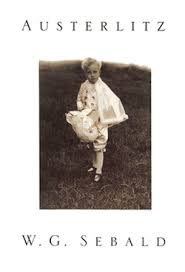


I’ve been not only reading Butor but writing about Butor, and about the connections between this novel and W G Sebald, for a very long time now. The title of this blog is obviously a reference to Butor – if I’ve posted less Butor stuff over recent years its because all of that is going into my PhD thesis, but there’s still plenty here, if you search for Butor or Sebald, and on a range of themes, from music to maps to Manchester, and to the labyrinth, which is the unifying motif in my thesis, one that recurs throughout Passing Time, and Sebald’s oeuvre.
When Butor died in 2016, I posted a tribute here, and said at the end:
It is sad that Jean Stewart’s English translation is currently only available at prices that would deter all but the most dedicated readers. Perhaps, when the British press gets around to noticing Butor’s passing and commemorating it appropriately, some enterprising publisher will take a punt on reissuing it, and giving a new generation of readers the chance to explore those rainy streets and lose themselves in Bleston.
https://cathannabel.blog/2016/08/29/butor-in-manchester/
And that is, pretty much, exactly what happened. Manchester-based Pariah Press are publishing a new edition of Jean Stewart’s excellent translation, in paperback, in May. It is a thing of beauty and I’d urge anyone who is interested in twentieth-century postwar fiction, in Manchester and/or the mythology of the northern city, in displacement and exile, in the detective novel, in labyrinths, in time and memory, in non-linear narratives and unreliable narrators, to order it now…

Suddenly there were a lot of lights. … I gradually struggled free of drowsiness, sitting there alone in the corner of the compartment, facing the engine, beside the dark window-pane covered on the outside with raindrops, a myriad tiny mirrors each reflecting a quivering particle of the feeble light that drizzled down from the grimy ceiling.
Michel Butor, Passing Time, trans. Jean Stewart
Go on. You can thank me (and Pariah Press) later…
2020 Books: Full-time Report
Posted by cathannabel in Literature on December 9, 2020
Reading has taken me out of lockdown, out of Tier 3, out of my own postcode. As a quick perusal of the titles below will show, it’s hardly been six months of escapism – that’s not the point. The point is that as life closed in, books were always there to take me to different places, different times, where I could hear different voices telling fresh new stories, or old, old stories in a new voice. I’ve been in Ancient Greece, in Finland at the start of the twentieth century, and in the dustbowl of Oklahoma. My fascination with WWII has taken me to besieged Malta, to the Burma railroad, and to the home front and the Blitz. I’ve travelled to India, Indonesia, Japan, Kenya, West Africa, the Caribbean, postwar Vienna and Prague. I’ve listened to a diversity of voices and a diversity of ideas. I’ve read for pleasure and diversion, and for enlightenment, and I’ve found plenty of both (often in the same books).
As always, the few things I read that weren’t up to much I have simply ignored – I want to share the good stuff, to enthuse other people about the books that have enthused me. I’ve linked to reviews where they’re not too spoilery, but click with care! I may come back to this after I’ve published it, to add on whatever I read between publication and midnight on 31 December – there’s a fair bit of reading time between now and then. I hope that something on this list might inspire you to read and enjoy. Do tell me, if so. (If you read something on my list and hate it, I do apologise, but don’t feel you have to tell me…)
FICTION
Ben Aaronovitch – I’ve continued to devour the Rivers of London novels, and have kept up with the series this autumn/winter by reading October Man (a novella), False Value, and a very tasty collection of short stories, Tales from the Folly.
Arvand Adiga – The White Tiger. Booker Prize winner from 2008. I didn’t love this, but I was gripped by it. I found it difficult to engage with the narrator – not that I always have to identify with, let alone like, the protagonist – but it was vivid and visceral and compelling.
Claire Askew – What You Pay For. A thriller in which the fact that we know or can work out early on some of the twists and turns of the plot doesn’t matter, because the strength of it lies with the two interweaving voices through whom it is told. An excellent follow-up to All The Hidden Truths, featuring the same detective but a very different story, focusing on a school shooting.
Nadeem Aslam – Maps for Lost Lovers. This is remarkable. It’s profoundly melancholy, sensual, full of colours (the fabrics, the birds and butterflies), smells of perfume and spices, sounds (jazz, and Nusrat Fateh Ali Kahn). We’re in an English town, called Dasht-e-Tanhaii, at least by the Pakistani communities who live there, and who’ve given the streets their own names too. It’s their home but they don’t feel at home there, constantly reminded that they do not belong. The book does not shy away from the brutality of the harsh orthodoxy that means everyone lives in fear of transgression, but, as Kamila Shamsie says, ‘love never steps out of the picture’.
Margaret Atwood – The Penelopiad. A funny, dark, feminist retelling of the story of Odysseus, from the point of view of the wife who waited – and the handmaids who were hanged on Odysseus’ return…
Oyinkan Braithwaite – My Sister the Serial Killer. One of my top crime books. Described as ‘a morbidly funny slashfest’ by the Guardian’s reviewer, which is fair enough. One of the best openings of anything I’ve read for a while.
Jane Casey – Silent Kill. A Maeve Kerrigan novella, from the perspective of one of the secondary characters in the main series. Nicely done – as well as standing alone from a plot point of view, for afficionados of the series it sheds light both on the main protagonist here but on many of the other characters who we’ve not seen from this angle before.
Christopher Cleave – Everyone Brave is Forgiven. I wept my way through this. It took me by surprise, firstly because the two books I’ve read (and loved) by Cleave have had contemporary settings, and this one is WWII, secondly because at first I thought the clipped and brittle dialogue might become wearing. But the setting was beautifully described and the way the characters spoke was as revealing as it was meant to be concealing. It got under my skin and the more passionately I cared about those characters, the more I longed for them to be safe and happy and the more I grieved when bad stuff happened. (Spoiler: it did)
Ann Cleeves – I had a major catch-up with her Vera and Shetland series, and binged all the ones that I’d not read yet over the course of a week or so. I’ve also discovered and binged the Inspector Ramsey books, published in the 1990s and recently revived as e-books. Ramsey rapidly grew on me – one reviewer described him as ‘quiet, puzzled, human’, which is quite right.
Kit de Waal – My Name is Leon. I read The Trick to Time last year, and loved it. This was brilliant too. The voice is that of what we would now call a ‘looked-after’ child – never sure if that is a euphemistic term, or just a naively optimistic one… It’s another book that I wept through and hardly dared to read on at some points, as I so badly wanted Leon to be OK. It’s compassionate and warm and based in real knowledge of the care sector. It’s hopeful too, although de Waal noted in a recent interview (for Sheffield’s Off the Shelf festival) that we leave him aged nine, with his most turbulent years to come and the odds are stacked against him.
Elizabeth de Waal – no relation to Kit, to the best of my knowledge. Elizabeth was part of the Ephrussi family, who lived in the eponymous palace in Vienna until the Anschluss. Their story forms part of Elizabeth’s grandson Edmund de Waal’s enthralling The Hare with the Amber Eyes. The Exiles Return is full of melancholy, and of humour. It was unpublished in Elizabeth’s lifetime, and has been brought out by Persephone Press, and is as beautiful to look at as all of their publications.
Helen Dunmore – The House of Orphans. I honestly thought I’d read all of Dunmore’s fiction, so it was a very welcome surprise to find this one. It isn’t my favourite of hers, but it was a compelling read and the setting was new to me (Finland in 1902)
Esi Edugyan – Washington Black. I read Half-Blood Blues a few years back and this is even better. The horrors of the plantation were familiar territory from other reading (Yaa Gyasi’s Homegoing and Andrea Levy’s The Long Song, to name but two recent reads, but going back to Alex Haley’s Roots), but Edugyan’s narrative takes off (literally) from there. It’s extraordinary, breathtaking and audacious.
Lissa Evans – V for Victory/Their Finest. I discovered Evans earlier this year, and had already read Spencer’s List, Old Baggage and Crooked Heart. I was waiting eagerly for V for Victory and it did not disappoint, funny and moving and beautifully written. As was Their Finest. Both, as the titles suggest, are set in WWII and paint a vivid picture of the home front, with the kind of sharp observation that is totally convincing. But most of all, the characters live and breathe and stay with you long after the book has ended.
Bernardine Evaristo – Girl, Woman, Other. Richly deserving of its awards, this is a glorious polyphony, the voices weave in and out of each other’s stories, each having its moment in the spotlight, so that we see the people we meet from different points of view, including their own.
Richard Flanagan – The Narrow Road to the Deep North. A harrowing read. The descriptions of life in the PoW camps and the building of the Burma railway are hard to cope with. But truly, where one’s heart breaks is in the lives that the survivors have afterwards, the weight they have to carry from their experiences, the impossibility of anyone actually understanding.
Aminatta Forna – Happiness. I’d previously only read Forna’s memoir, The Devil that Danced on the Water, in which she writes of her childhood and the fate of her father, a political prisoner in Sierra Leone. This is a wonderful novel, which makes us see the night time Londoners that are so often invisible to us, whether that’s the urban foxes or the migrant security staff and bin men. All of the characters are in some way exiled, displaced or nomadic (a Ghanaian specialist in PTSD and an American wildlife biologist are at the heart of it). It’s beautiful and hopeful and melancholy.
Robert Galbraith – Troubled Blood. I wish it were possible to review this without any reference to Rowling’s views on trans rights. She made it impossible, by including a character who dresses as a woman to seem unthreatening to women he intends to kill. As many reviewers have said, that is tone deaf at best, and tends to reinforce the feeling that she has become sadly obsessed with this aspect of the trans issue. For the record, I disagree profoundly with her. However. This is a gripping – albeit very long – crime thriller, which kept me on tenterhooks to the end, and continues the development both of Strike and Robin’s characters and of their relationship.
Amitav Ghosh – Gun Island is about climate change, about human and animal migration. The Guardian said that it ‘brims with implausibility; outlandish coincidences and chance meetings blend with ancient myth and folklore, tales of heroism and the supernatural.’ I wasn’t sure at first, but decided to go with the flow, and I loved it.
Isabelle Grey – The Special Girls/Wrong Way Home/Shot through the Heart. I began this excellent series, featuring DI Grace Fisher, with Good Girls Don’t Die earlier this year, and binged these later titles more recently.
Elly Griffiths – The Postscript Murders. Sequel to The Stranger Diaries, featuring DS Harbinder Kaur. This is a delight, albeit a delight with a high body count…
Mohsin Hamid – Exit West. Hamid, author of The Reluctant Fundamentalist, blends fable and realism (there are moments when I thought of The Underground Railroad) in its account of refugees – what drives them to flee, what becomes of them.
Kazuo Ishiguro – A Pale View of Hills. Ishiguro reckoned that this, his debut, didn’t quite work. ‘I do think it’s too baffling. The ending is almost like a puzzle. I see nothing artistically to be gained by puzzling people to that extent. That was just inexperience—misjudging what is too obvious and what is subtle. Even at the time the ending felt unsatisfactory.’ Nonetheless, it is compelling, and very unsettling (something Ishiguro is rather good at – I was completely discombobulated by The Unconsoled, as if I was trapped in an anxiety dream).
Tayari Jones – An American Marriage. In some ways this is a contemporary take on James Baldwin’s If Beale Street Could Talk – the young married couple, the wrongful arrest, the judicial system weighted against him, the long wait. And speaking of the waiting wife, oddly and by pure coincidence, the book I picked up after this was Margaret Atwood’s The Penelopiad… The narrative is constructed through the voices of the husband, the wife, and later on, the friend, so we see the same events from those different perspectives, which adds depth and nuance. Compelling and moving.
Meena Kandasamy – When I Hit You. This was another tough read, an autobiographical account of domestic violence, ‘a meditation on the art of writing about desire, abuse and trauma’.
Philip Kerr – Hitler’s Peace. I’ve read most of Kerr’s Bernie Gunther novels, so was interested in this slice of alt history. As always with Kerr, it’s scrupulously researched – the scenario is startling but robustly established, and there’s that same sense of impossible moral choices that pervades the Gunther series. Gripping, and troubling.
Heda Margolius Kovaly – Innocence. Kovaly is fascinating – earlier this year I read her memoir Under a Cruel Star, which records her life through the Holocaust and Stalinist repression in post-war Czechoslovakia. She later became a translator, with a particular fondness for Raymond Chandler, which feeds into this crime novel set in Prague in 1951, and drawing on her own experiences.
Nella Larsen – Passing. I’d seen her name but had never realised she was an American writer of colour. The clue is in the book’s title – it’s about those who can ‘pass’ as white, and what it does to them, the insecurity, the fear of the consequences should their identity be exposed. Will explore her work further. Passing was published in 1929, and Larsen is one of the leading writers of the Harlem Renaissance.
John le Carré – Agent Running in the Field. Le Carré never fails me. Elegantly satirical writing, taut plotting, and a dash of righteous indignation. This is his most recent novel, from 2019.
Postscript
And as it turned out, it was his last. He’d said as much in a October 2019 interview, but there was no reason to suppose he might not go on for years. His recent novels were elegiac in tone, and often raging (about Brexit, Trump, the calibre of the current crop of political leaders), as sharp as ever, as funny as ever, as gripping as ever. I started reading him in my early teens, and never really stopped. I’ve five more to read, and then I think I will start again at the beginning, and our introduction to George Smiley, in Call for the Dead.
Laura Lipmann – The Power of Three. One of Lipmann’s earlier stand-alones, from 2005. Secrets, friendships, betrayals…
Attica Locke – Bluebird, Bluebird/Heaven my Home. Having read the two Jay Porter novels (Black Water Rising and Pleasantville) I turned to the two Highway 59 titles. The protagonist is a black Texas Ranger, and race is the tension that’s humming away constantly, relentlessly, in everything that happens. Brilliantly done.
Richard Mathieson – I am Legend. I’d seen the Will Smith movie, but the book is very different, both in the initial premiss and the way the plot unfolds. Mathieson’s vampires are not only unlike those in the movie, but unlike those in the Buffy universe, Stephen King’s Salem’s Lot, and the daddy of them all, Dracula. They don’t work to the same rules. His protagonist is utterly alone and utterly lonely, working out not only how to survive but how it all works, and applying a ruthlessly scientific approach to the process.
Denise Mina – Conviction Never know quite what you’re going to get with Mina. This one is a very twisty thriller, described by The Scotsman as almost Hitchcockian in its evocation of paranoia and doubt.
Abir Mukherjee – Death in the East. I dived into the Sam Wyndham series with the most recent title, but will go back and read its predecessors with great enthusiasm. This one is a classic locked room mystery, a case that began in Whitechapel in 1905 and resurfaces unexpectedly in India in 1922. The racial politics of immigrant London and colonial India are vividly and often uncomfortably conveyed.
Joyce Carol Oates – A Book of American Martyrs. Two men, two families and the fall-out from a crime, the killing of a doctor by an anti-abortion fundamentalist. The focus moves from the killer and the victim to the wives and the children, struggling to work out who they can be without the men who have defined them. There was a fascinating synergy between this and Aslam’s Maps for Lost Lovers (see above).
Yvonne Adhiambo Owuor – Dust A poetic, complex novel of contemporary Kenya. ‘At the core of Owuor’s novel … is a moral concern to forgive past wrongs. … Dust is a fine, compassionate novel that relishes the complexity of human relations. It is written in a language that is often beautifully observant, and is alert in its insight and sympathy.’
Laksmi Pamuntjak – The Birdwoman’s Palate. This is a strange one! It’s about an epidemiological investigation (avian flu), and a culinary road trip. I’m not completely convinced that it all fitted together, but even if it didn’t, both elements were interesting and attractively written (Pamuntjak is a poet and a food writer)
Sara Paretsky – Indemnity Only/Body Work. I’ve read a few V I Warshawskis over the years, in no particular order, but not these two – turns out Indemnity Only is the very first in the series. Lots more in that series for me to enjoy.
Sally Rooney – Conversations with Friends. Admired rather than loved. I preferred Normal People, I think. I found the protagonists here frustrating, opaque even whilst so much of their inner and external lives was laid out for me.
Liz Rosenberg – The Laws of Gravity. I nearly stopped reading this when I realised that cancer was going to be a major driver of the plot. That made it a tougher read, this year of all years, than it would otherwise have been – but Rosenberg’s writing is warm, compassionate, empathetic, and unsparing.
Sunjeev Sahota – The Year of the Runaways. The precariousness of a life on the margins, a life in which the most minor misfortune can be catastrophic, and in which choice is an illusion, a luxury. The ‘runaways’ have all ended up in Sheffield, which is where we first meet them, for a variety of reasons which we then discover. Some are in more desperate straits than others but the gulf between the life they live and the life they hoped for is vast and unbridgeable. ‘Sahota moves some of the most urgent political questions of the day away from rhetorical posturing and contested statistics into the realm of humanity.’
Kamila Shamsie – Home Fire/Burnt Shadows. Both excellent. But the take on Antigone in Home Fire passed me by somewhat, and Burnt Shadows is the one that stays with me, from the opening sequence in 1945 Nagasaki onwards, as it sweeps across countries, continents and decades. As Shamsie says, ‘History had blown them all off course, no one ending – or even middling, where they had begun’, and that’s turned out to be quite a theme of this year’s reading.
Ali Smith – Autumn. Whenever I read Ali Smith I remind myself I must read more Ali Smith. For some reason, I hadn’t embarked yet on her seasonal quartet and at a few pages in, already I was saying to myself that I must read everything Ali Smith has written.
Zadie Smith – NW. My first Zadie Smith, and I wasn’t quite sure about it. It seemed jumpy, fragmented, and whilst some sections or voices were convincing others weren’t quite. Adam Mars Smith’s review said that the real mystery of the book is that ‘it falls so far short of being a successful novel, though it contains the makings of three or four’. However, I will certainly read more of her work – when it works it works astoundingly well.
Cath Staincliffe – Quiet Acts of Violence. Staincliffe doesn’t deal in baroque serial killers, but in messy lives and messy crimes. Her speciality perhaps is the way in which the ripples from the crime spread out and touch other lives, and she tells these stories with humanity and compassion, whilst maintaining a powerful sense of tension. The crime is investigated by DI Donna Bell and DC Jade Bradshaw, who were introduced in Girl in the Green Dress and who I’m delighted to meet again here.
John Steinbeck – The Grapes of Wrath. Yes, I know it’s a classic and I should have read it decades ago but hey, there are a lot of books out there, and I just hadn’t got round to this one, OK? I found the dialogue took quite a lot of concentration before I could ‘hear’ it in my head, but the narrative is relentless and powerful. Maybe I should read some other Steinbeck…
Lesley Thomson – The Detective’s Secret. The third in the Detective’s Daughter series, whose protagonists are untypical, to say the least – a cleaner (the detective’s daughter herself) and a train driver, both of them drawn into the investigation of crimes through a mix of chance and compulsion. The plot is complex and skilfully constructed, and, as with the earlier volumes in the series, it’s gripping stuff. Perhaps it’s a series best read in order as the back story of the two main characters is complex in itself.
Sylvia Townsend Warner – English Climate. Stories of England in wartime – the Home Front, gossip and judgement and boredom, Mothers’ Union and knitting circles, ordinary lives made extraordinary. Another Persephone publication. ‘Funny, brilliantly written, at times utterly heart-breaking, delightfully sharp, dry, intelligent and full of memorable characters’
NON-FICTION
Akala – Natives: Race and Class in the Ruins of Empire.
Jeffrey Boakye – Black, Listed: Black British Culture Explored
Afua Hirsch – Brit(ish): On Race, Identity and Belonging
I’m grouping these three together because I read them in fairly quick succession, and found that they were exploring quite similar territory, albeit with very distinct voices – the experience of being black and British, the stereotypes and prejudices (explicit and implicit) they’ve faced. Hirsch and Boakye both have Ghanaian heritage, Akala Caribbean. All three reflect on gender, and how that intersects with race. All three tell their stories and make their arguments with humour, grace and passion.
Jackie Kay – Red Dust Road. Poet Jackie Kay has a somewhat different story to tell, that of an adopted child with a Nigerian father, growing up in a deeply loving and warm white family and needing, as an adult, to find her birth parents. It’s beautiful, and moving without ever being merely sentimental.
Nikesh Shukla – The Good Immigrant. Shukla brings together a collection of 21 short reflections by black, Asian and minority ethnic writers working across literature and the media on ‘what it means to be a person of colour’ in Britain today.
James Baldwin – Selected Essays. Some of these I read back in my teens when I was immersing myself in the literature of the civil rights movement, some are new to me. His writing is so compelling – having just seen the film I Am Not Your Negro I can see and hear him as I read.
Kamala Harris – The Truths we Hold: An American Journey. Read whilst waiting for news of the US election result to emerge, waiting, and hoping… That Harris will shortly become the first woman VP, the first woman of colour at the highest level of US politics, the first South Asian-American… and so on, and so on, is inspiring and wonderful. For Bonnie Greer it is even more deeply significant than Obama’s presidency.
Margot Lee Shetterley – Hidden Figures. This fascinating account gives far more depth to the remarkable Afro-American women ‘who helped win the space race’ than the film was able to do. It also gave much more weight to the science, which in the film came across as a kind of magic (inevitably, I guess).
Rachel Clarke – Dear Life: A Doctor’s Story of Love and Loss. Why on earth did I choose to read a book about death, about the end of life, in the year that my darling kid brother died of cancer? Well, perhaps there was method in my madness. It is a very honest book, tough and unsparing. But it’s also tender and loving – the love is both for the dying and for those who are close to them (and for the doctors and nurses who help them in those last days and hours). It’s not just about dying, but ‘about living, loving, learning how to say goodbye’. And thus it is supremely life-affirming.
Caroline Criado Perez – Invisible Women: Exposing Data Bias in a World Designed for Men. That’s it, the subtitle says it really. What follows is a whole series of examples, taken from all sorts of environments which show not only that women have been invisible to planners, designers and policy makers, but that designing for the ‘default male’ results not only in annoyance and frustration but puts women’s physical and mental health at risk, whether from PPE that simply doesn’t fit the female shape, or from the misdiagnosis of heart failure because it presents differently in women. Some of the examples are relatively familiar, others startling. All are enraging.
Hallie Rubenhold – The Five: The Untold Lives of the Women Killed by Jack the Ripper. Inevitably, as I read this, I thought of other women, victims of another so-called Ripper. I could not have guessed that soon after I finished this brilliant, rigorous and compassionate account, the death of that other Ripper would have triggered news reports and analyses, many of which did try at least to right the wrongs done to the murdered women, by saying their names, and telling their stories. It was about time. Rubenhold’s account gives a richly detailed account of the life and precarious times of each of the ‘canonical’ Ripper victims, showing how their lives might have been different, as well as how and why things went wrong. It’s a vital, heartbreaking piece of work. I hope, some time, for another volume that restores to ‘the thirteen’ the stories of their lives, not merely of their deaths.
Daniel Trilling – Lights in the Distance: Exile and Refuge at the Borders of Europe. So many of the novels I read this year (and in recent years) have been preoccupied with migration, with the forces that make individuals take huge risks in search of a better life (whether that is better economically or simply the chance of survival). Trilling visits the places where ‘the “fault lines” in Europe’s asylum system are clearest’ and talks to refugees and those who work with and try to help them, and his account is both thoroughly researched and compellingly human.
Rowena Edlin-White (ed.) – Exploring Nottinghamshire Writers. This goes way beyond the usual suspects (Byron, Sillitoe, Lawrence). From Walter Hilton, b. 1340, to writers still very much with us and publishing in a variety of genres. The accounts of their lives and works give us some fascinating social history of the region, and whilst some of the writers may be of historical interest only, others would seem well worth tracking down.
Rob Hindle – The Grail Roads. From my favourite poetry publisher, Longbarrow Press, whose virtues include not only an excellent and varied collection of contemporary poetry, but also books that are beautiful to behold as well as to read and a delivery system that (for those of us in the right postcodes) involves the publisher arriving at one’s front door, seemingly only hours after the order is placed, and handing over a package with the book and a handwritten thank you. This volume blends first hand accounts from WWI soldiers with Arthurian myth, and it’s a powerful piece of work, one that I know I will return to.
Owen Booth – What We’re Teaching our Sons. I don’t know how to categorise this book, so I won’t. I’ll just say that it is funny, observant, and touching. The Irish Times reviewer commented: ‘With the emotional depth of a novel mixed with the breezier form of a parenting manual, Booth has written a remarkable debut whose profound documenting of family life is achieved in less than 200 pages.’
You can find my account of the first half of 2020 here.
Postscript: Obviously, I didn’t stop reading once I’d posted this, so here’s what I read during the remainder of 2020.
Louise Penny – The Nature of the Beast and A Great Reckoning: two more from her always readable and engaging Inspector Gamache series
Maj Sjowall & Per Wahloo – Roseanna, the first in their Martin Beck series. I’ve seen the TV adaptation but hadn’t read anything by them before – I was prompted to after a friend commented on their absence from my 100 top crime novels list!
Two more John le Carrés – The Russia House and The Secret Pilgrim.
Lee Jackson – The Welfare of the Dead, a Victorian-set crime novel by a new author to me.
Val McDermid – Place of Execution. Excellent stand-alone, completely gripping and very cleverly plotted.
Arnold Bennett – These Twain. The third in the Clayhanger trilogy (though it turns out there’s a fourth). Much less interesting than its predecessor, Hilda Lessways.
Nicci French – Blue Monday and Tuesday’s Gone. The first two in the Frieda Klein series.
#BlackLivesMatter #Wakanda Forever
Posted by cathannabel in Film, Literature, Politics, Racism on August 29, 2020

I’ve been trying to write this piece for weeks now. Hesitating because, after all, why would anyone need to read the thoughts of a white, middle-aged, middle-class English woman about something she has never experienced, and could never experience? But nonetheless this post has been buzzing around in my head for so long, and I know that the only way to stop that is to write.
And, this morning, I woke as so many did to the awful news that Chadwick Boseman, the actor best known as the Marvel Cinematic Universe’s Black Panther, has died at only 43 years old. I remembered how I felt in the cinema watching that film, how exhilarating it was to see the large screen filled with powerful, beautiful black people, in control of their destinies, white people largely irrelevant. And how I thought of what that must have felt like to people of colour, those who’ve seen movie after movie where they are absent, or peripheral, or victimised, or expendable. And those who have been waiting, whether they knew it or not, for a super hero who resembled them.
Some disclaimers. I’m not trying to prove anything here, not trying to get approval or validation. I’m talking, primarily, to other white people, about how we can learn and listen, how we can recognise and take account of our privilege, and know when to speak and when to STFU. If I get something wrong feel free to tell me (but I’m not asking you to educate me, that’s my responsibility). I’m a work in progress, still, at 63. I expect and hope that I’ll still be learning, expanding my understanding, for the rest of my life, whilst my faculties are intact at least.
So, where am I from? No, where am I really from? My upbringing was very different to that of anyone I went to school with in Chatham or Mansfield in the late 60s/early to mid 70s, very different to that of my cousins and other wider family. It shaped my response to the racial politics of the UK in that era and beyond. It influenced what I read, and what I watched.
When I was three years old, we (my parents, myself and my two younger siblings) flew to a new life in Ghana, West Africa. Of course we were massively privileged in our lives there, in the immediate aftermath of independence, living on the University campus in Kumasi, where my father taught Physics and Maths. We were ‘expats’, not immigrants. No one expected us to integrate, to assimilate, to adopt Ghanaian dress or diet, or to learn the language. My school teachers were all British, my classmates included Ghanaian children, but also British, American, Canadian. (When we moved to Northern Nigeria, there were no African children in my class. Not one.)
That upbringing did not give me a means to understand what it is to be black in Britain. My white skin gave me privilege as a member of an ethnic minority in West Africa as it does here where it makes me part of the norm. But those childhood experiences did broaden my horizons, expand my consciousness and my sympathies, and gave me a wealth of experiences against which to measure the attitudes and assumptions I encountered back home.
I think first of all, of the Door of No Return. Cape Coast and Elmina Castles, two of the forts on the Ghanaian coast which were the point of departure for the slaves, the last place they saw before they were crammed into the holds of the ships for the Atlantic crossing. I don’t recall in detail what my parents told me about their history when we visited, but I still recall the place, and the association with horror, the chill, even in the humid heat of Ghana.
I remember the first time I heard a white person say something casually racist. I remember not so much shock or offence, but bafflement. It seemed to me so incomprehensibly stupid, to generalise in that way. It made no sense to me then, that first time, in Africa, any more than it did later, in Chatham or Mansfield. I never knew how to respond – where do you begin, with something so incomprehensibly stupid?
My memories of Ghana are vivid, warm, happy. I know I can lay no claim to Ghana as part of my heritage – I lived there for just five – albeit formative – years. When I use my Ashanti day name, Abena (girl born on a Tuesday) as part of my Facebook name, when I use an image of kente cloth as the background to my Twitter profile, am I, as I hope and intend, honouring a part of my life for which I am immensely and profoundly grateful, or am I appropriating something to which I have no right? But those things (and my support for the Ghana national football team, and my love of West African music) feel like part of me.
Our parents taught us well. At an early age (before we came home to England, so before I was ten years old) I knew that whilst other ‘expats’ were planning, in light of the rapidly deteriorating situation in Nigeria, to move to jobs in Rhodesia or South Africa, my parents never would. And they taught me why. (Their passionate opposition to those regimes would probably have made them persona non grata anyway.)
I knew that Martin Luther King was an important man, a good man, who represented the values that my parents were teaching us, and they had taught me well enough that I knew by the time I was ten years old that his murder was a terrible thing, a huge loss to the world.
As a teenager, I was drawn to the American civil rights struggles, and I read everything I could get hold of. I read MLK, Angela Davis, George Jackson, James Baldwin, Malcolm X.
But one of the most powerful books for me was by a white man. John Howard Griffin, a white journalist, disguised his skin with a combination of medication (anti-vitiligo treatment), tanning and cosmetics, and went South. He was motivated by the recognition that the only way to know what it was like to be black in the USA, was to become black in the USA. Of course it wasn’t the same – he had an exit strategy (although he was subjected to threats and a near-fatal attack when the book was published and his identity revealed), and he had experienced most of his life up to the point of his self-transformation as a white man with all the privileges that entails. But his account is viscerally compelling. What stayed with me from my first reading was the ‘hate stare’ – something I would never experience, almost certainly never witness.
Alex Haley’s Roots (whether it is fiction or history, or a blending of the two) gave me a black epic, a story that spanned centuries and continents, that took up the story of the people who had been herded through the Door of No Return, and did not flinch from the brutality of slavery and of the injustice that persisted for so long after.
I almost never talked about my interest in the politics of race, not to my schoolfriends. I feared discovering that their response would make friendship problematic, or impossible. And, to be honest, as a teenager desperate to fit in, I feared being regarded as nerdy or odd. We talked about pop music, telly and boys, not about politics. And the strange culture of the times meant that one tribe listened to virtually no black music (though they allowed a free pass to Hendrix), whilst another listened to mainly African-American and Caribbean music, whilst being associated with prejudice against people of South Asian origin, and with the nascent National Front. It was dangerous territory, even though in my grammar school there was, throughout my years there, just one non-white girl (from India, as I recall), and in the Mansfield area at the time, the largest immigrant community was Polish. I kept reading though, just didn’t talk about it.
I read a number of the Heinemann African Writers series from my parents’ bookshelves (Chinua Achebe, Buchi Emecheta, Bessie Head, Ngugi wa Thiongo, Camara Laye, Wole Soyinka). I read Alan Paton’s Cry the Beloved Country, and Trevor Hudleston’s Naught for your Comfort. I read E R Braithwaite’s Please Sir (a whole heck of a lot less soppy than the film) and Paid Servant.
And those books, and world events, led me on to Steve Biko and Nelson Mandela, to Maya Angelou and Toni Morrison, to Kwame Anthony Appiah, David Dabydeen and more recently to Reni Eddo Lodge and David Olusoga.
Meantime, the sound of Ghana, the highlife music that had wafted over from the student residences to our home on campus, was part of me. I was prepped to respond to black American music, to Motown and Stax and Philly, and to ska and reggae. And then I heard Osibisa, and that started a journey of exploration of African music – music from all over that continent, but finding the sounds of Mali and Senegal took hold of me in a way that no other music did. I still feel that way.
For all this, I realised part way through this year, as I nerdily compiled my list of what I’d read, that it was disappointingly, dispiritingly, shamefully white. Somehow I’d kept on gravitating (during what, to be fair, has been a brutal year, full of loss and sadness) towards familiar voices, familiar histories, familiar settings. That this realisation coincided with the resurgence of the Black Lives Matter protests following the murder of George Floyd is no coincidence at all.
However well I have been taught, however widely I have read and listened, my life can still be told (if one skips those few years in ‘darkest Africa’, as my grandfather always referred to it) without reference to my race. My journey through school and work, marriage and parenthood, has been untroubled by the colour of my skin. I have experienced prejudice, sure, as a woman in the workplace, and as a girl and woman in public spaces. I can extrapolate from those experiences, but it’s not enough, nowhere near.
So I need to read black writers, to hear those voices, those experiences and to let them expand my ideas, my sympathies, my knowledge. It’s powerful, and sometimes uncomfortable. But it’s a process that started when I was 5 or 6 years old, looking out of the Door of No Return.
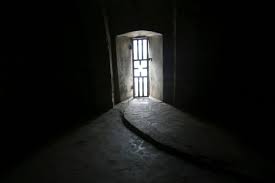
Black lives matter. Of course they do. As the wonderful Dolly Parton put it, “…of course Black lives matter. Do we think our little white asses are the only ones that matter? No.” My words will make no real difference, I have few illusions on that front. But perhaps I will prompt someone to read more widely, to read more stuff by people who don’t look like they do, to risk being made uncomfortable, being challenged to rethink their assumptions, their bias, the language they use. Perhaps.
And would I take the knee? It’s a beautiful gesture, one of honour and respect. I wasn’t sure at first why it moved me so much, till I saw the photos of MLK and remembered. Yes, I’d take the knee, in a heartbeat. It might take a bit longer for me to get up again though…
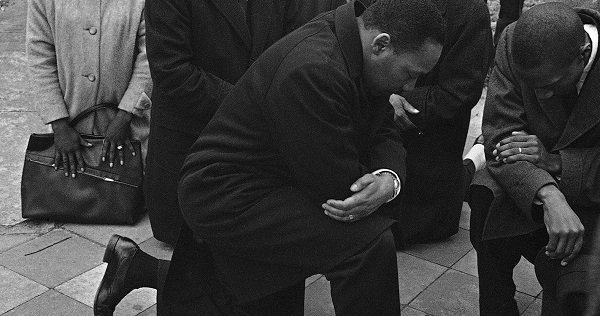
My 2020 Reading List (so far):
- Chimamanda Adichie – Dear Ijeowole
- Arvind Adiga – The White Tiger
- Jeffrey Boakye – Black: Listed
- NoViolet Bulawayo – We Need New Names
- Angela Davis – Women, Race and Class
- Nicole Dennis Benn – Patsy
- Jason Diakite – A Drop of Midnight
- Bernardine Evaristo – Girl, Woman, Other
- Yaa Gyasi – Homegoing
- Mohsin Hamid – Exit West
- Afua Hirsch – Brit(ish)
- Meena Kandasamy – When I Hit You
- Andrea Levy – The Long Song
- Attica Locke – Pleasantville
- Kenan Malik – From Fatwa to Jihad
- Yvonne Adhimabo Owuor – Dust
- Laksmi Pamuntjiak – The Birdwoman’s Palate
- Johnny Pitts – Afropean
- Sunjeev Sahota – The Year of the Runaways
- Kamila Shamsie – Home Fire
- Margot Lee Shetterley – Hidden Figures
- Nikesh Shukla (ed.) – The Good Immigrant
- Ron Stallworth – Black Klansman
- Colson Whitehead – The Nickel Boys


